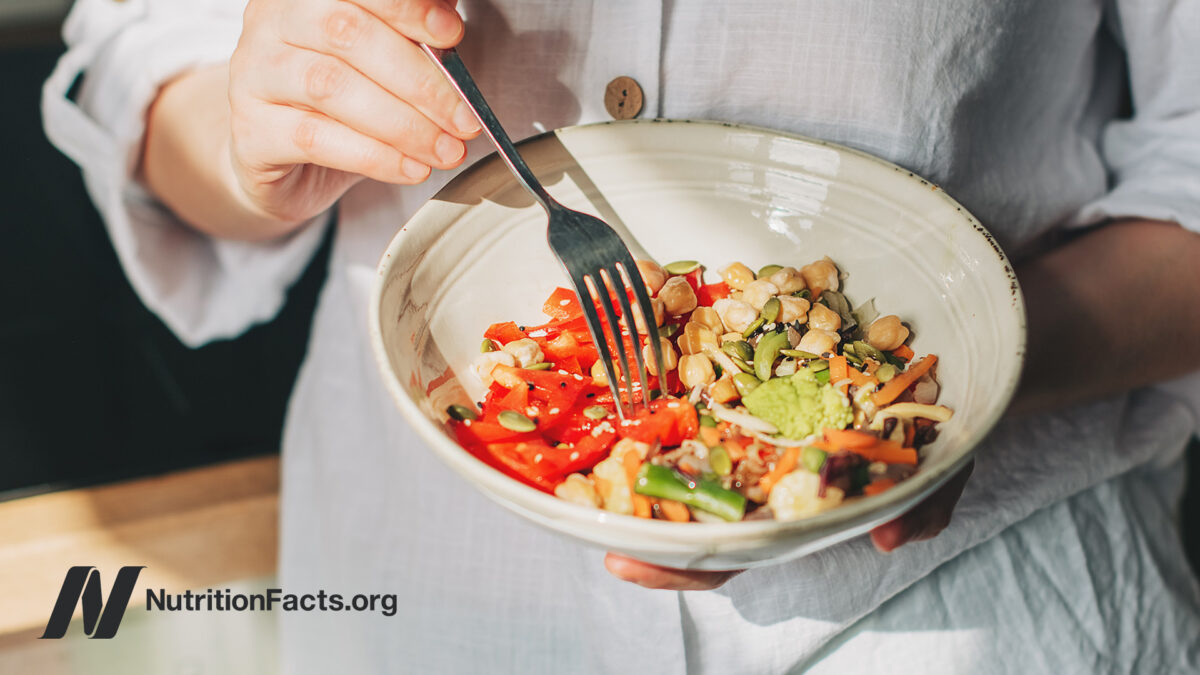
Cancer
Whereas infectious diseases were the primary causes of death during the Age of Pestilence and Famine, our current era of human disease, the Age of Degenerative and Man-Made Diseases, counts lifestyle diseases—heart disease, chronic lung disease, and cancer—as the top killers.
This pandemic of chronic disease has been ascribed in part to the near-universal shift toward a diet dominated by animal-sourced and processed foods—in other words, more meat, dairy, eggs, oils, soda, salt, sugar, and refined grains. China is one of the best-studied examples. There, a transition away from the country’s traditional, plant-based diet was accompanied by a sharp rise in diet-related chronic diseases, such as obesity, diabetes, cardiovascular diseases, and cancer.
The same kind of diet that may help prevent common cancers just so happens to be the same kind of diet that may also help prevent heart disease, type 2 diabetes, and many other leading causes of death. Unlike drugs—which tend to only target specific conditions, can have dangerous side effects, and may only treat the symptoms of disease—a healthy diet can benefit all organ systems at once, has good side effects, and may treat the underlying cause of illness.
That one unifying diet found to best prevent and treat many of these chronic diseases is a whole-food, plant-based diet, defined as an eating pattern that encourages the consumption of unrefined plant foods and discourages meats, dairy products, eggs, and processed foods.
The truth is that adhering to just four simple healthy lifestyle factors can have a strong impact on the prevention of chronic diseases: not smoking, not being obese, getting a half hour of daily exercise, and eating healthier—defined as consuming more fruits, veggies, and whole grains, and less meat. Those four factors alone were found to account for 78 percent of chronic disease risk. If you start from scratch and manage to tick off all four, you may be able to wipe out more than 90 percent of your risk of developing diabetes, more than 80 percent of your risk of having a heart attack, cut by half your risk of having a stroke, and reduce your overall cancer risk by more than one-third. For some cancers, like our number-two cancer killer, colon cancer, up to 71 percent of cases appear to be preventable through a similar portfolio of simple diet and lifestyle changes.
For substantiation of any statements of fact from the peer-reviewed medical literature, please see the associated videos below.
Popular Videos for Cancer

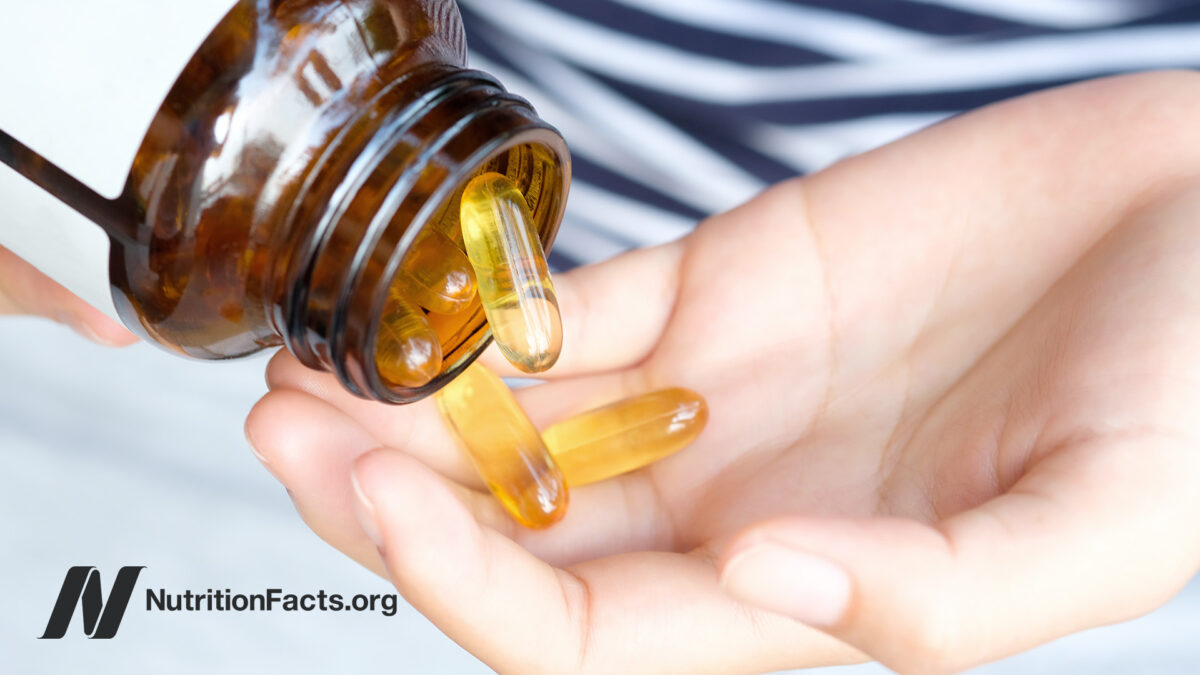
Do Vitamin E Supplements Have Benefits for Cancer, Immunity, and Longevity?
Those who buy vitamin E supplements may in effect be paying to live a shorter...
How to Prevent Skin Cancer with Diet
A randomized controlled trial found that a low-fat diet can result in a ten-fold lower...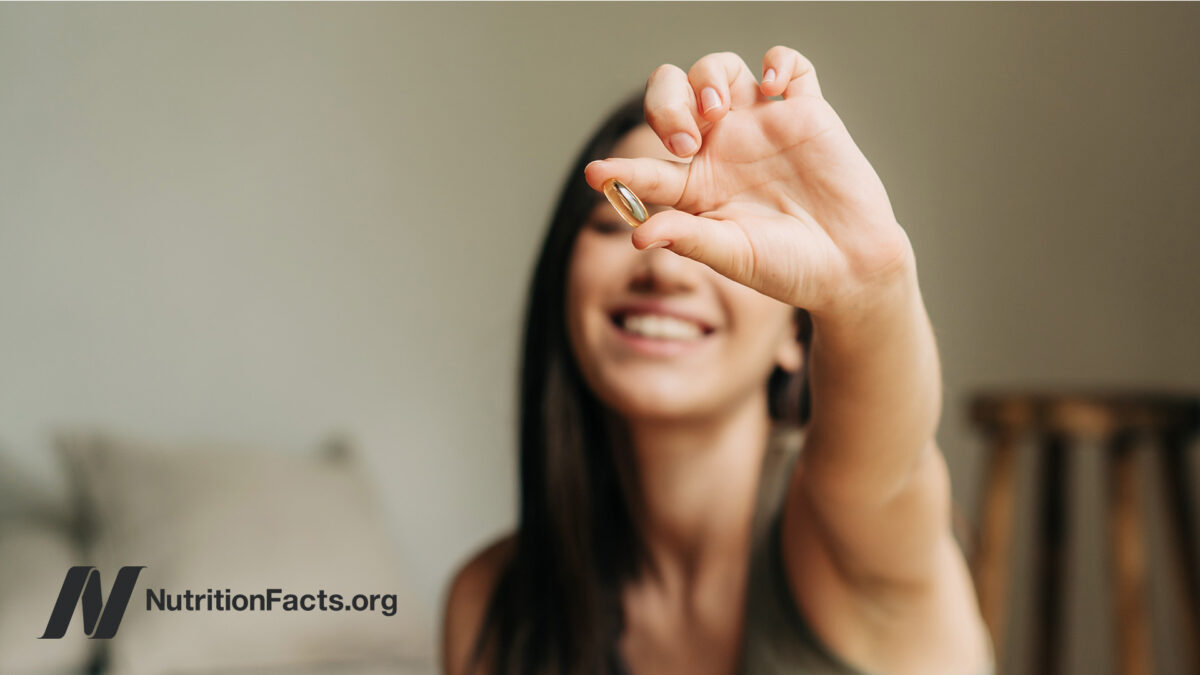
The Best Supplement to Prevent Skin Cancer
Oral nicotinamide has been shown to prevent skin cancers in high-risk patients and cause precancerous...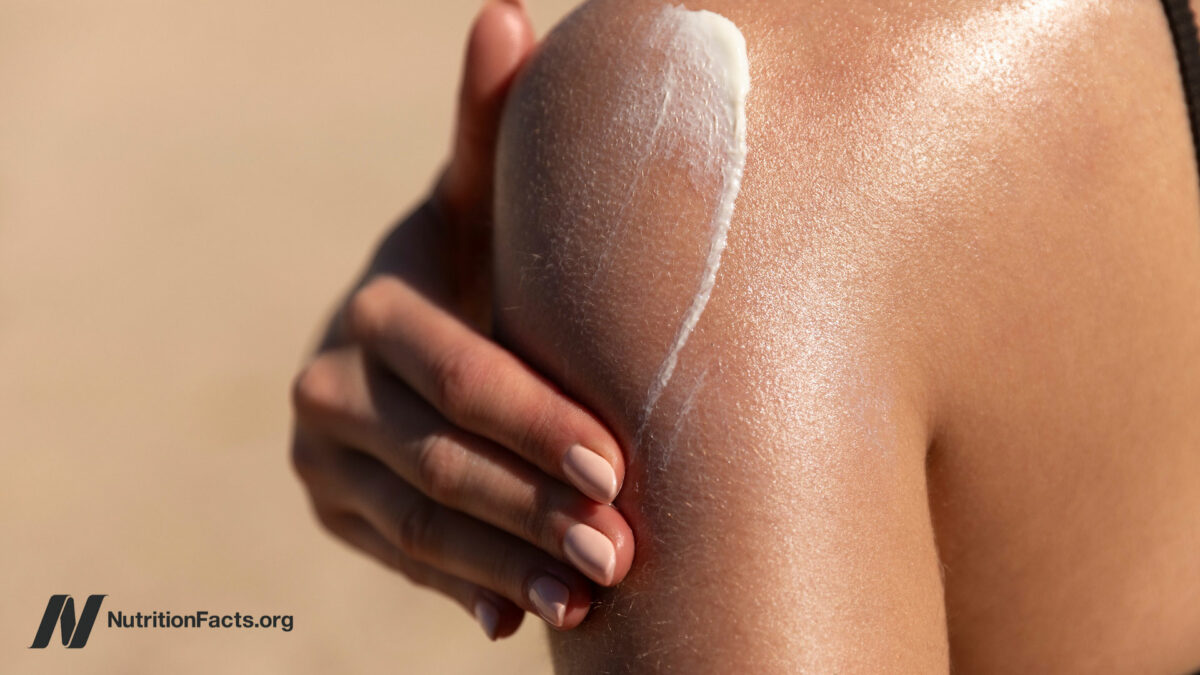
Does Sunscreen Cause or Prevent Skin Cancer?
Sunscreen is put to the test in a randomized controlled trial to see if it...
A Case of Stage 3 Cancer Reversal with Fasting
I go over a case report of water-only fasting, followed by a whole food, plant-based...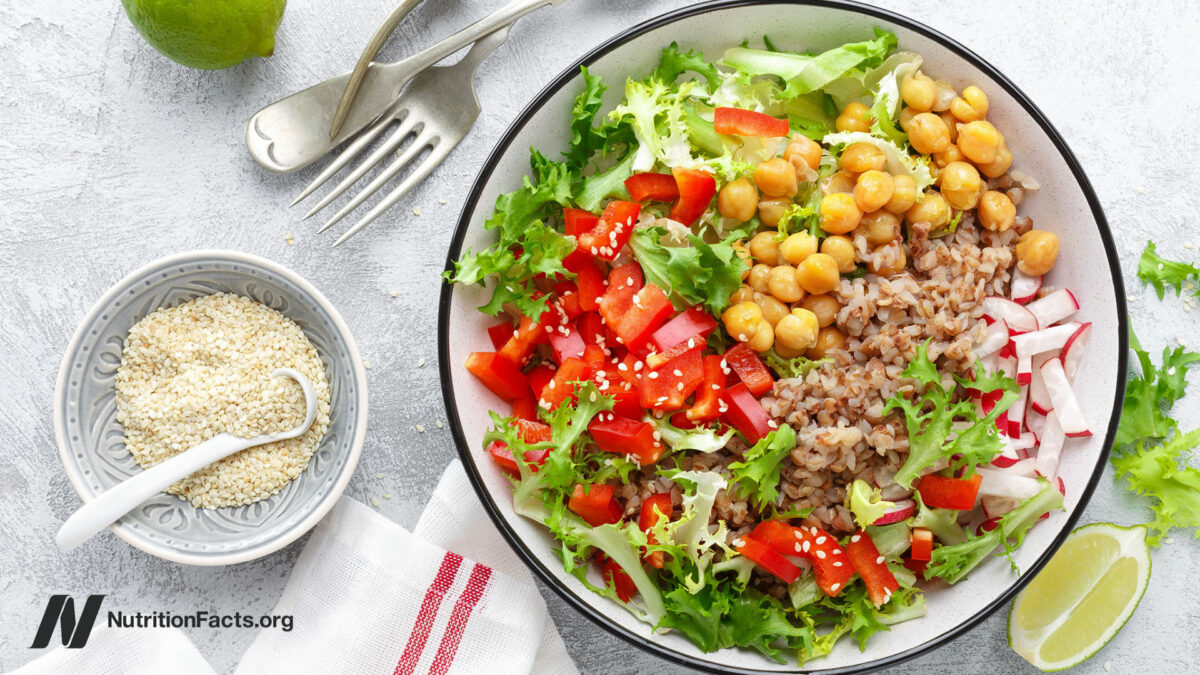
The Impacts of Plant-Based Diets on Breast Cancer and Prostate Cancer
Why do people who eat more plants get less breast and prostate cancer?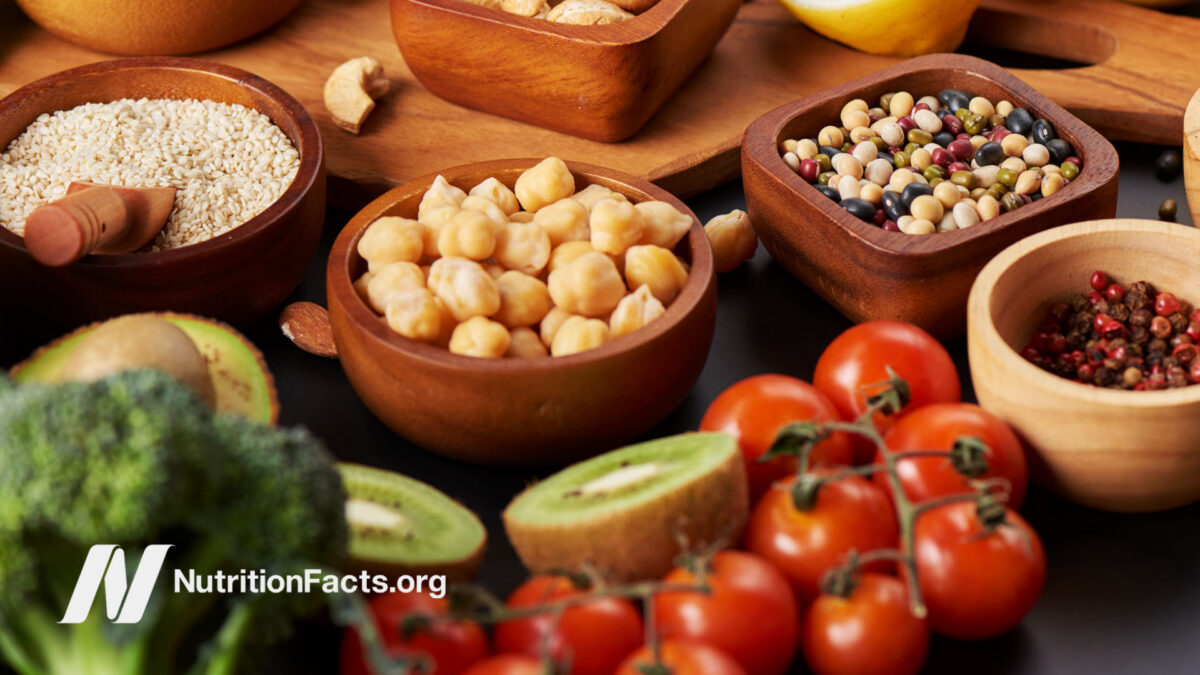
The Best Diet for Cancer Patients
What diet should oncologists recommend?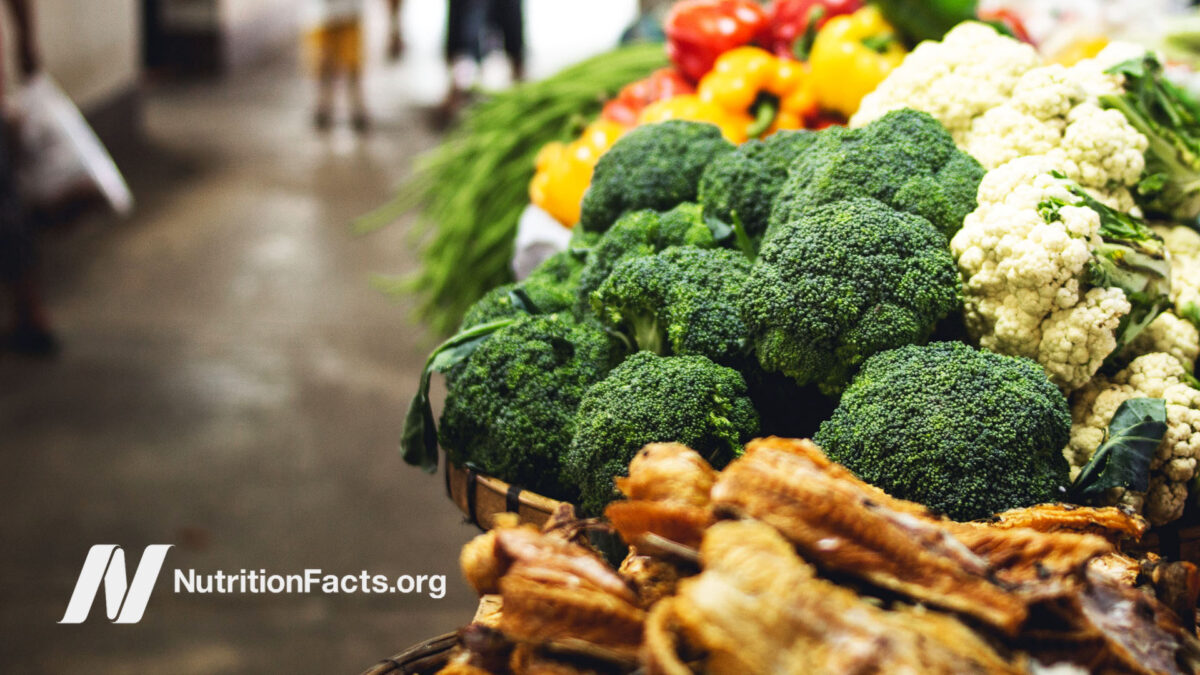
Diet and Lifestyle for Cancer Prevention and Survival
What kind of diet should cancer patients eat?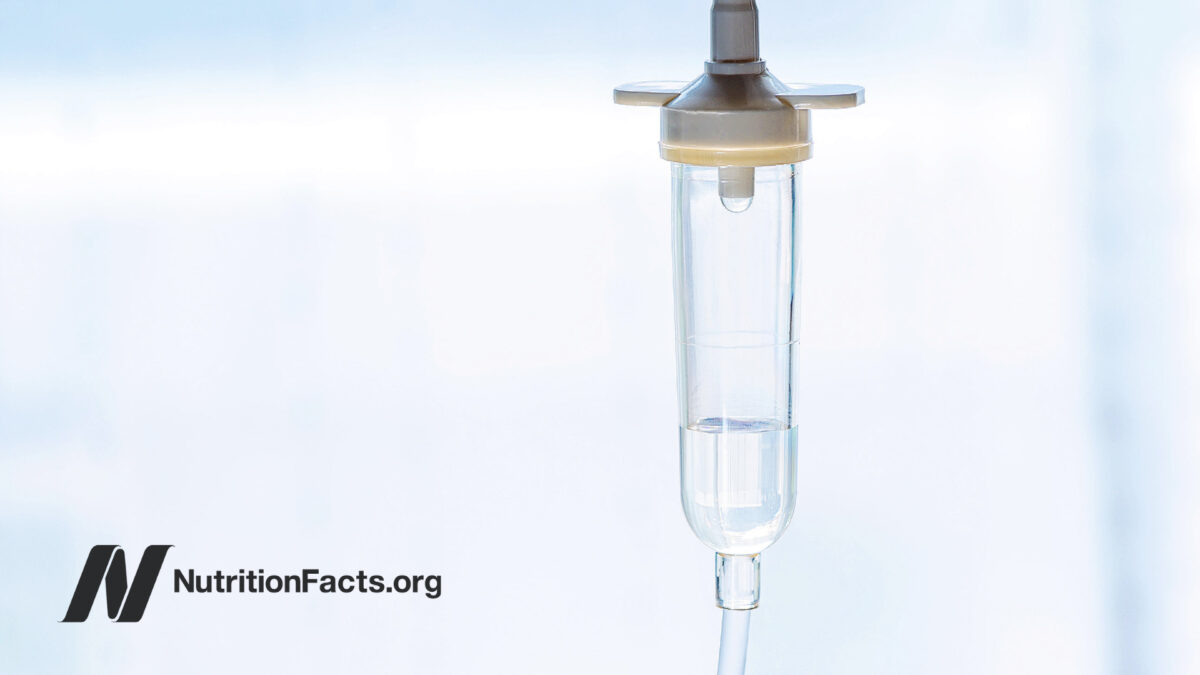
How Effective Is Chemotherapy?
Most chemo drugs are approved by the FDA without evidence of benefit on survival or...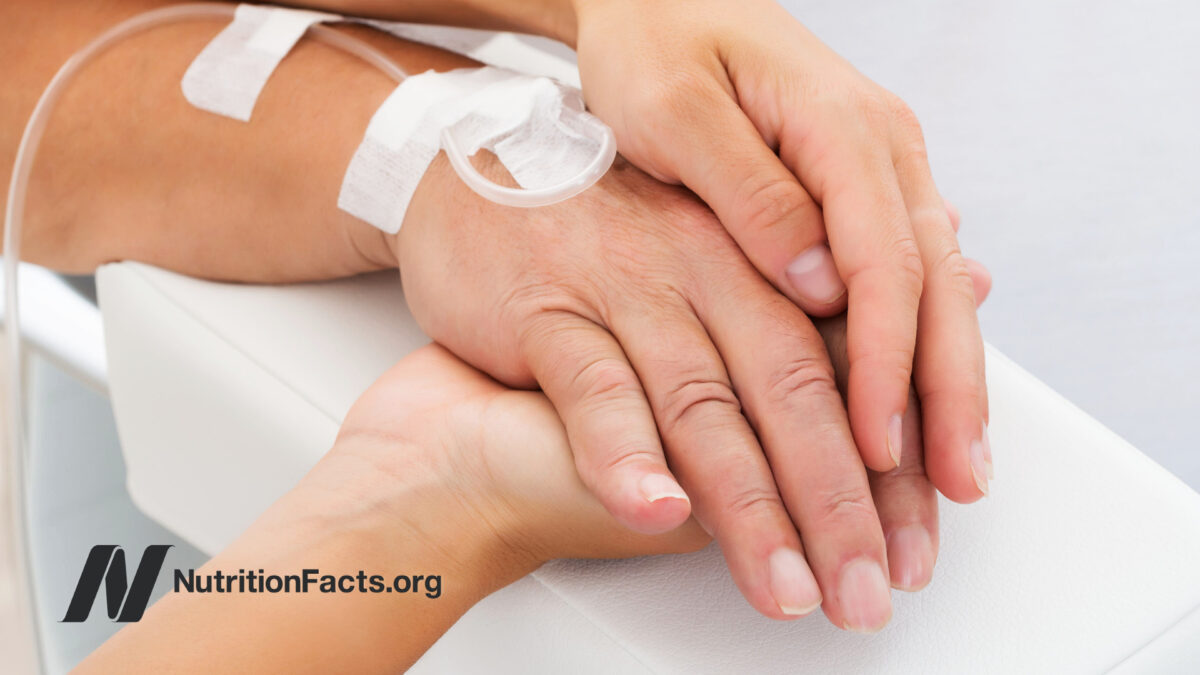
How Much Does Chemotherapy Improve Survival?
If you put together all of the new chemo drugs that had been approved over...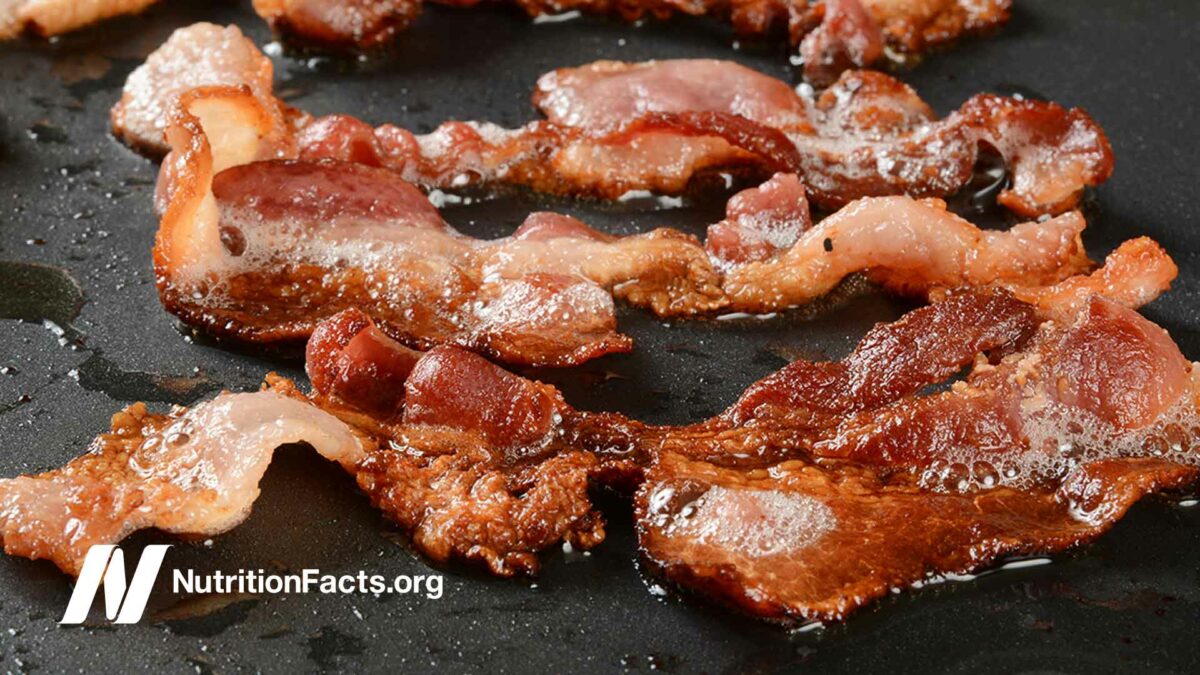
How Much Cancer Does Processed Meat Cause?
I quantify the risks of colon and rectal cancers from eating bacon, ham, hot dogs,...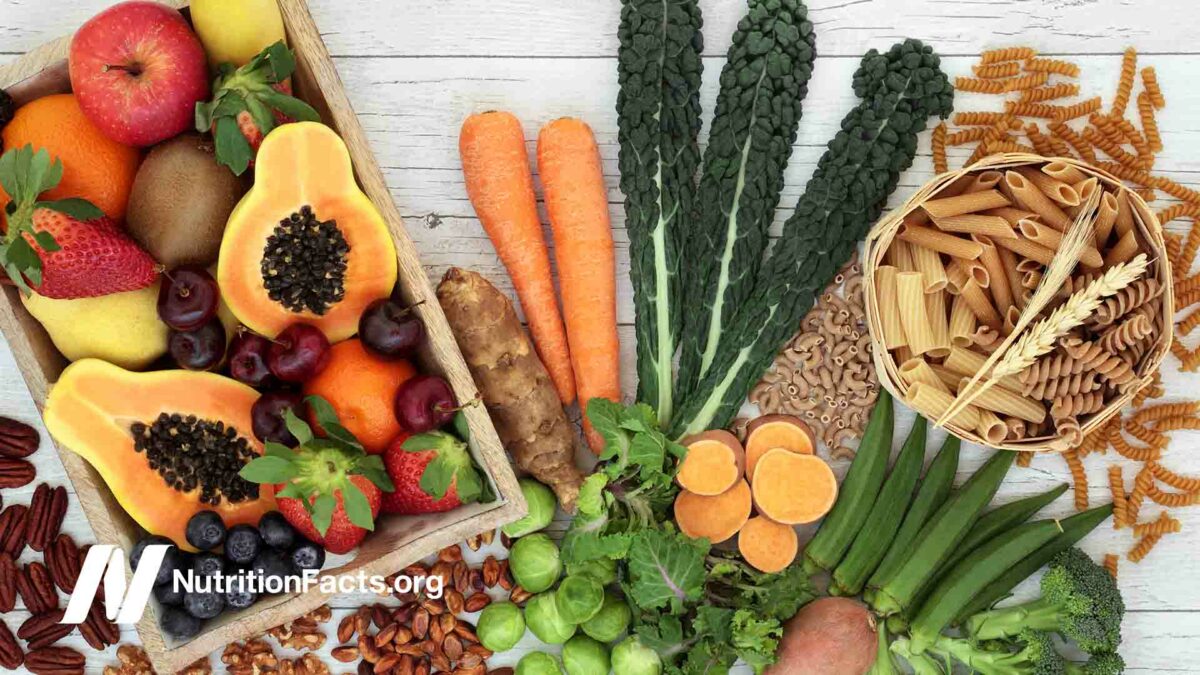
Fighting the Ten Hallmarks of Cancer with Food
The foundation of cancer prevention is plants, not pills.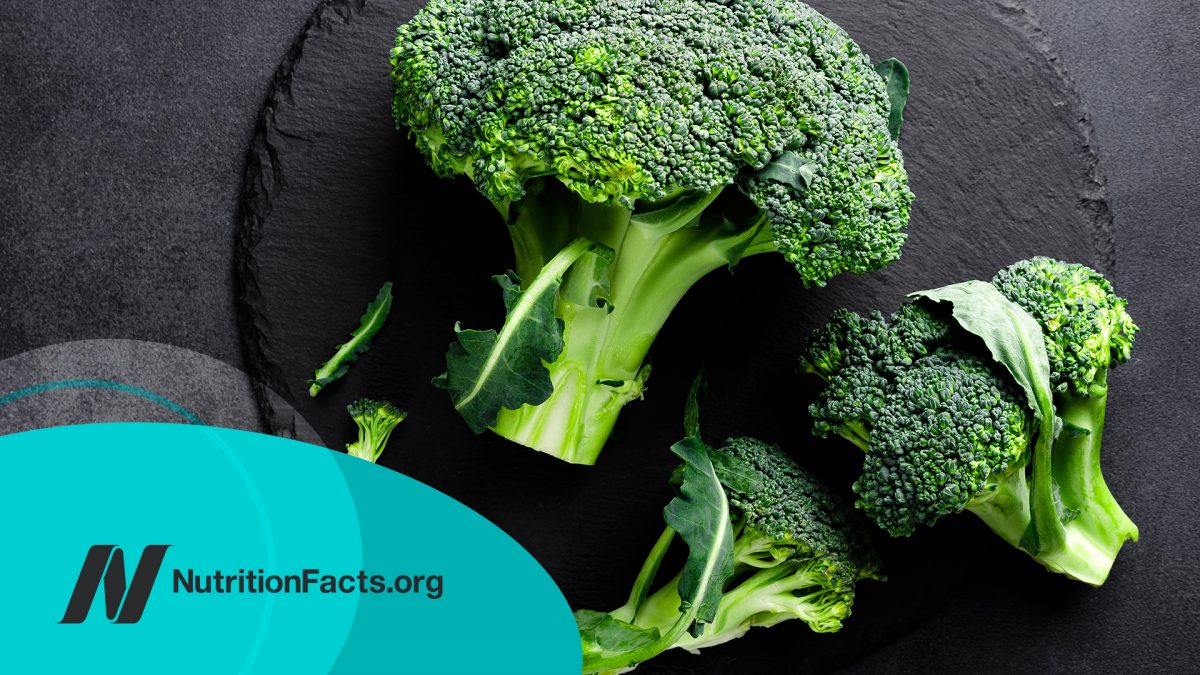
The Food That Can Downregulate a Metastatic Cancer Gene
Women with breast cancer should include the “liberal culinary use of cruciferous vegetables.”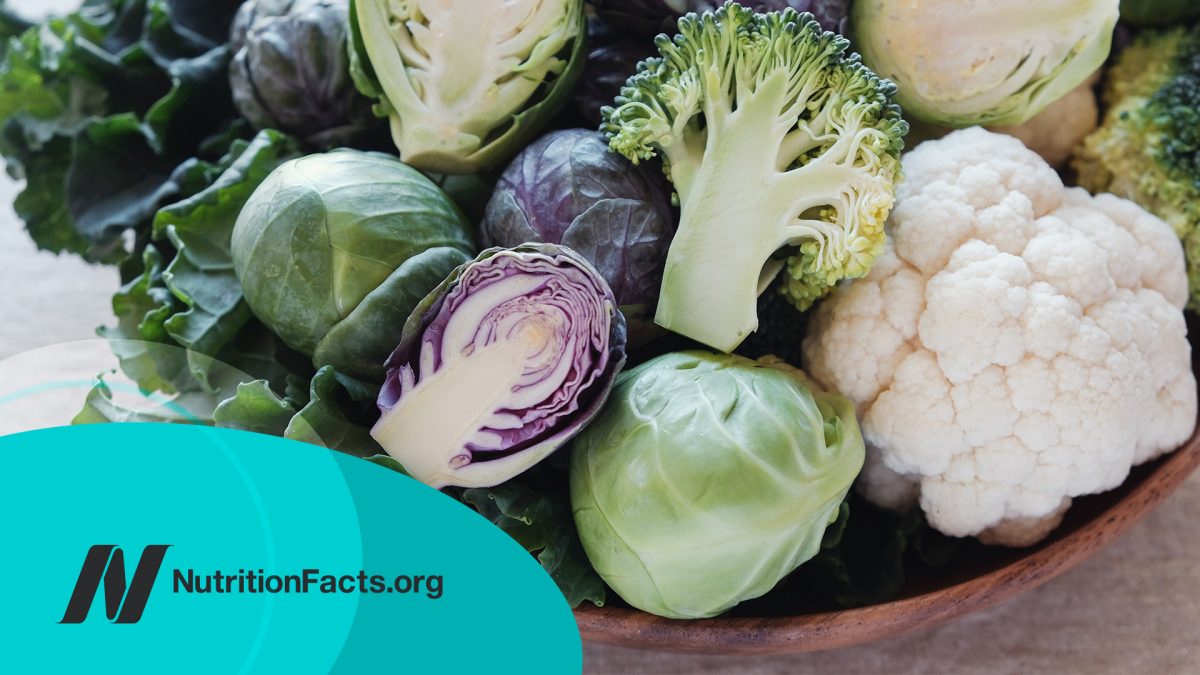
How to Help Control Cancer Metastasis with Diet
Randomized controlled trials show lowering saturated fat intake can lead to improved breast cancer survival.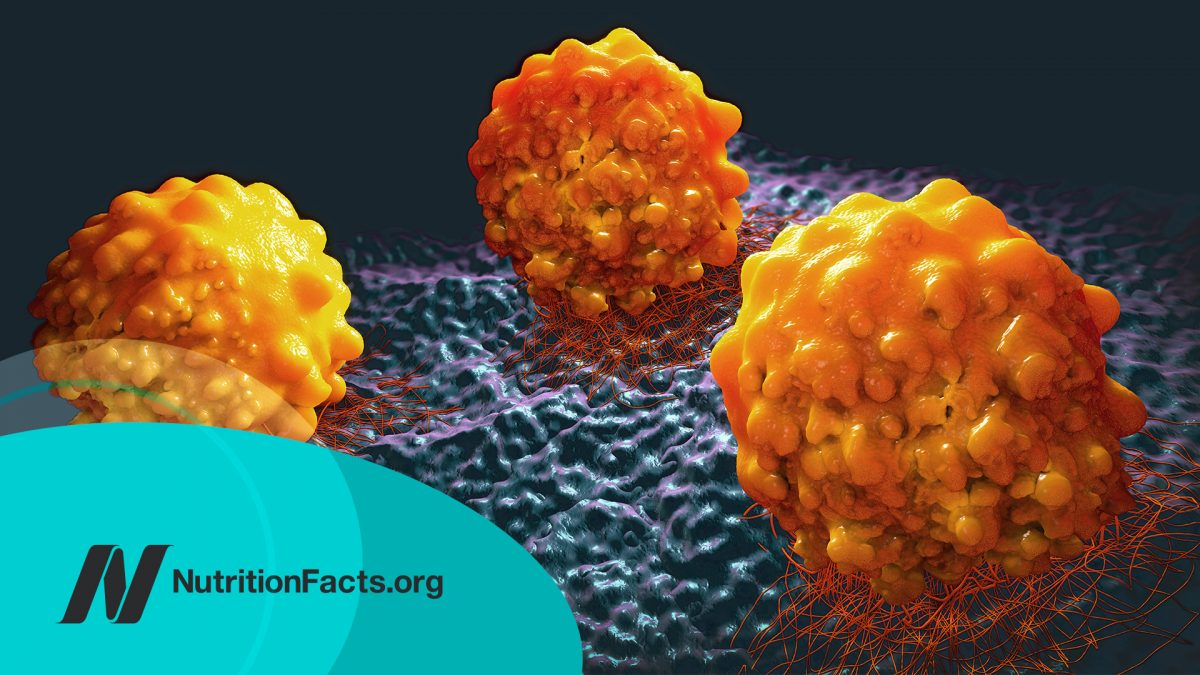
What Causes Cancer to Metastasize?
Palmitic acid, a saturated fat concentrated in meat and dairy, can boost the metastatic potential...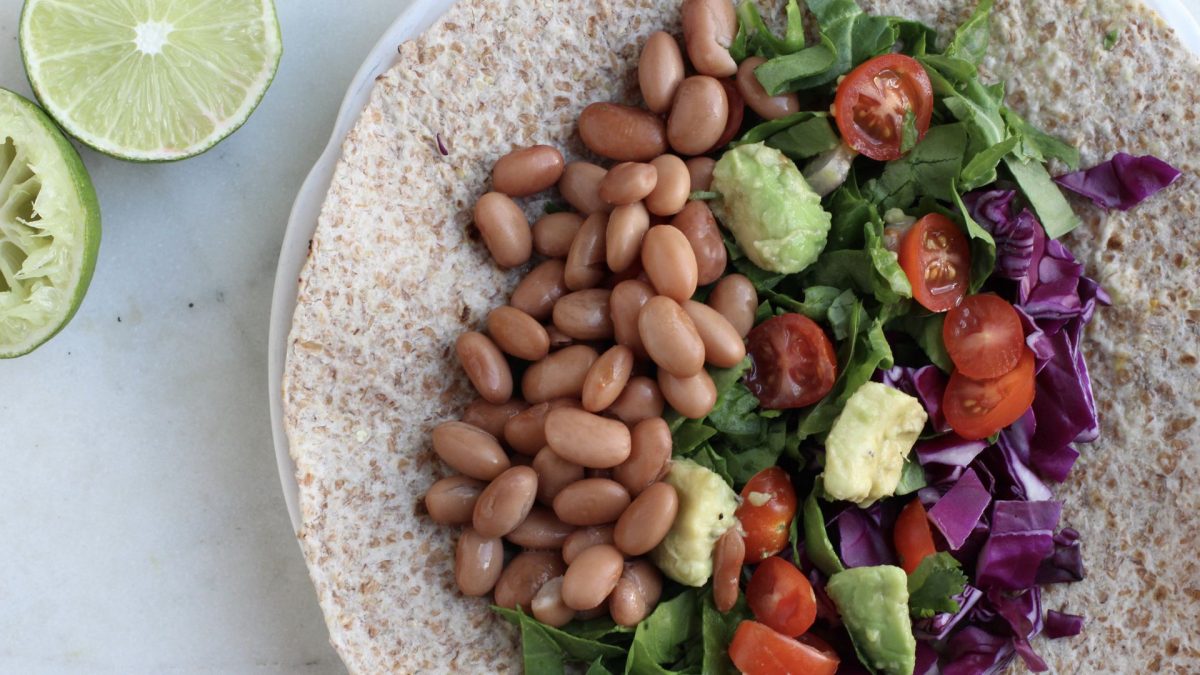
The Best Diet for Colon Cancer Prevention
What would happen within just two weeks if you swapped the diets of Americans with...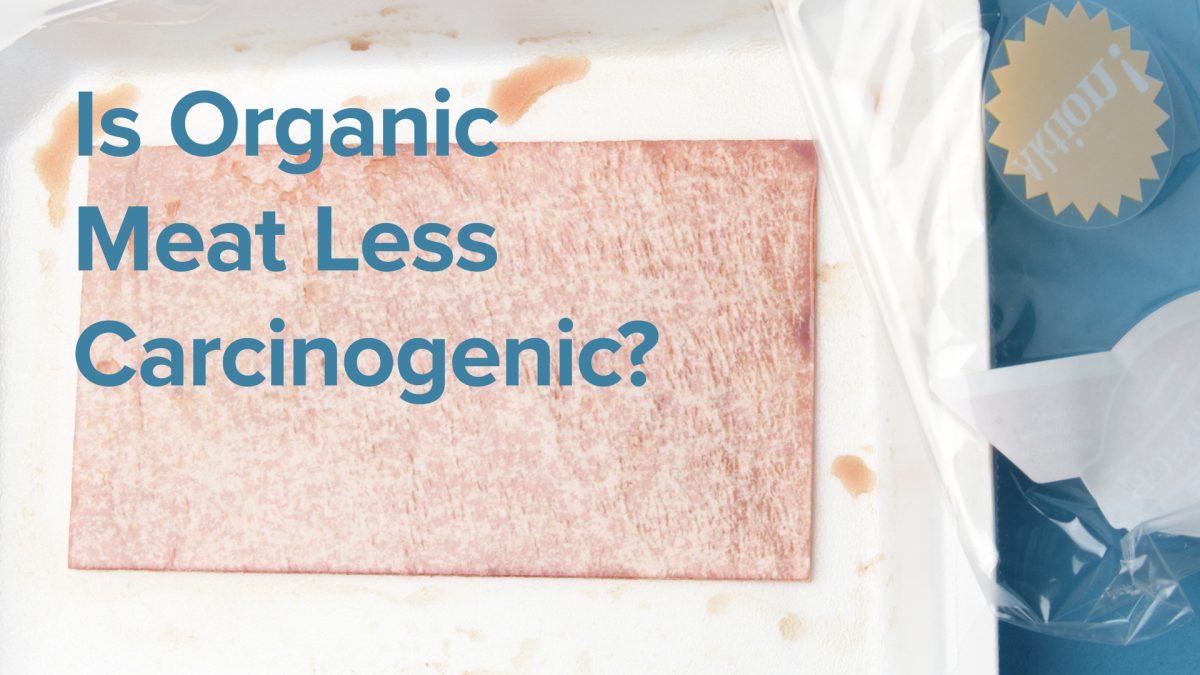
Is Organic Meat Less Carcinogenic?
Researchers tested 76 samples of different kinds of organic and conventional meats for 33 different...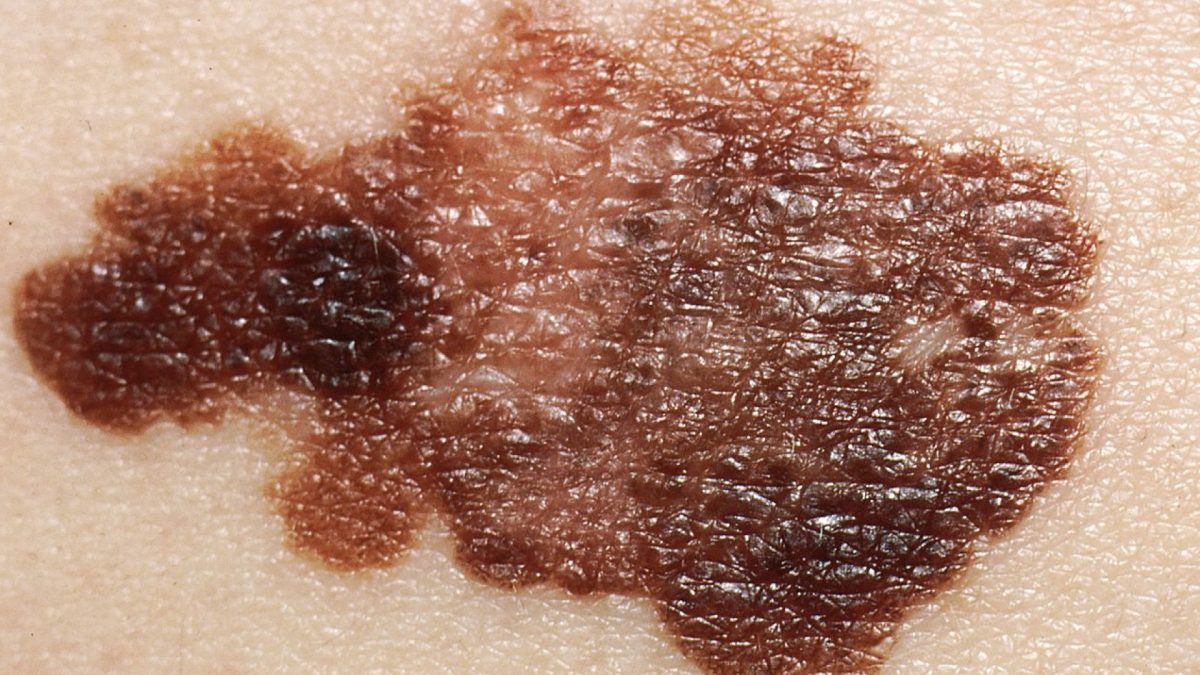
Black Salve as an Alternative Cancer Cure
Is black salve, a paste made from bloodroot, safe and effective for the treatment of...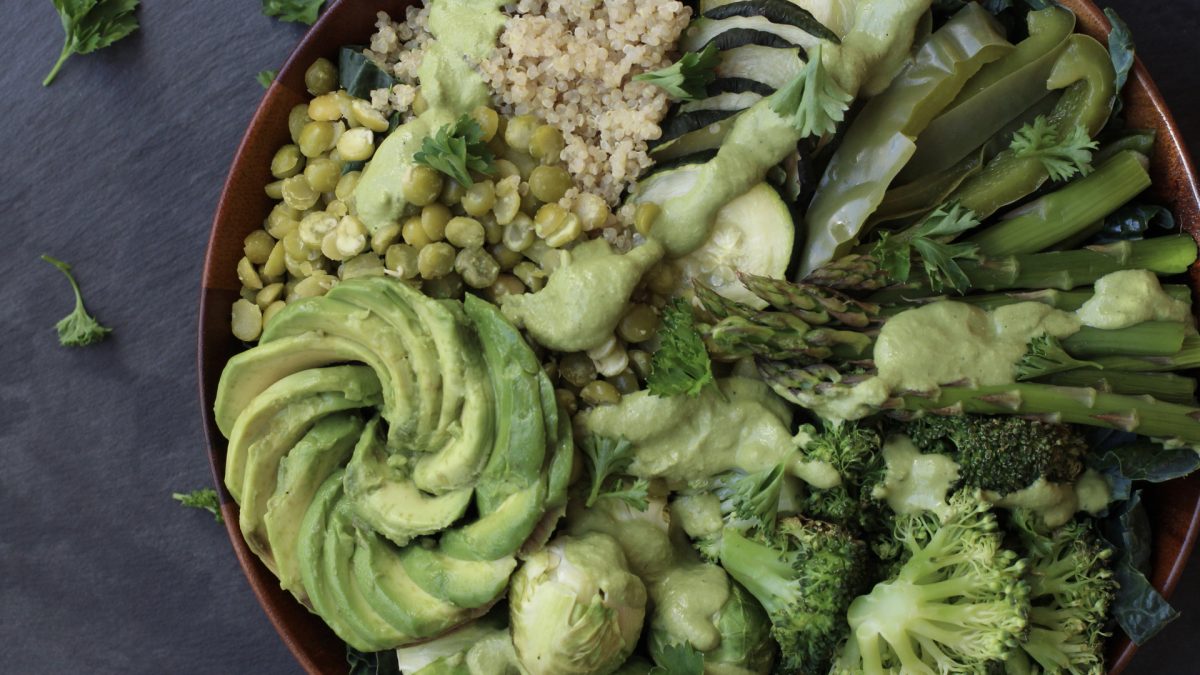
Treating Advanced Prostate Cancer with Diet: Part 1
Dr. Dean Ornish showed that a plant-based diet and lifestyle program could apparently reverse the...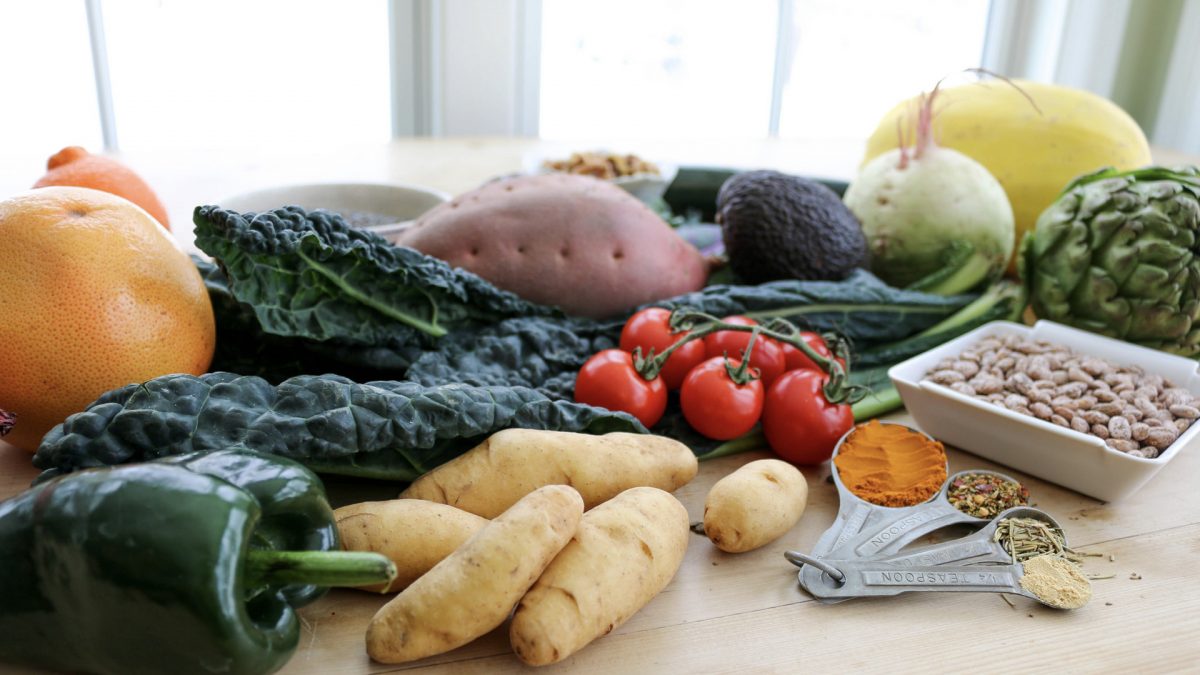
Treating Advanced Prostate Cancer with Diet: Part 2
What happens when metastatic prostate cancer patients were taught to increase intake of whole grains,...
Tomato Sauce vs. Prostate Cancer
What happened when cancer patients were given three quarters of a cup of canned tomato...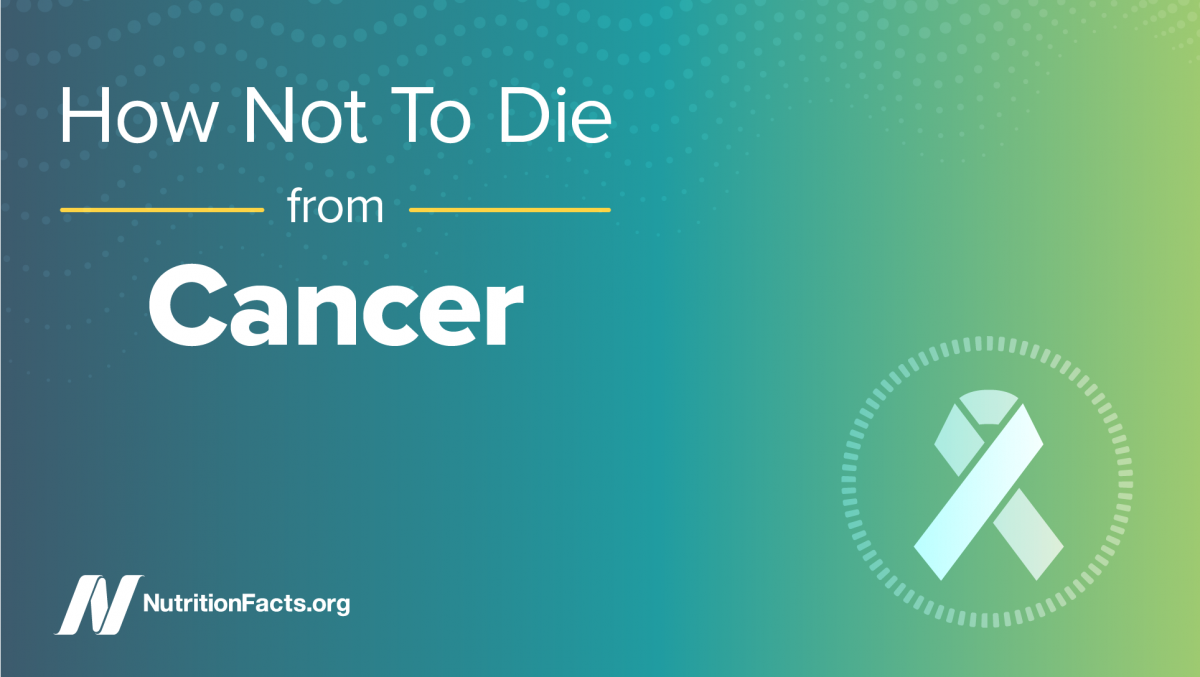
How Not to Die from Cancer
What happens when we put cancer on a plant-based diet?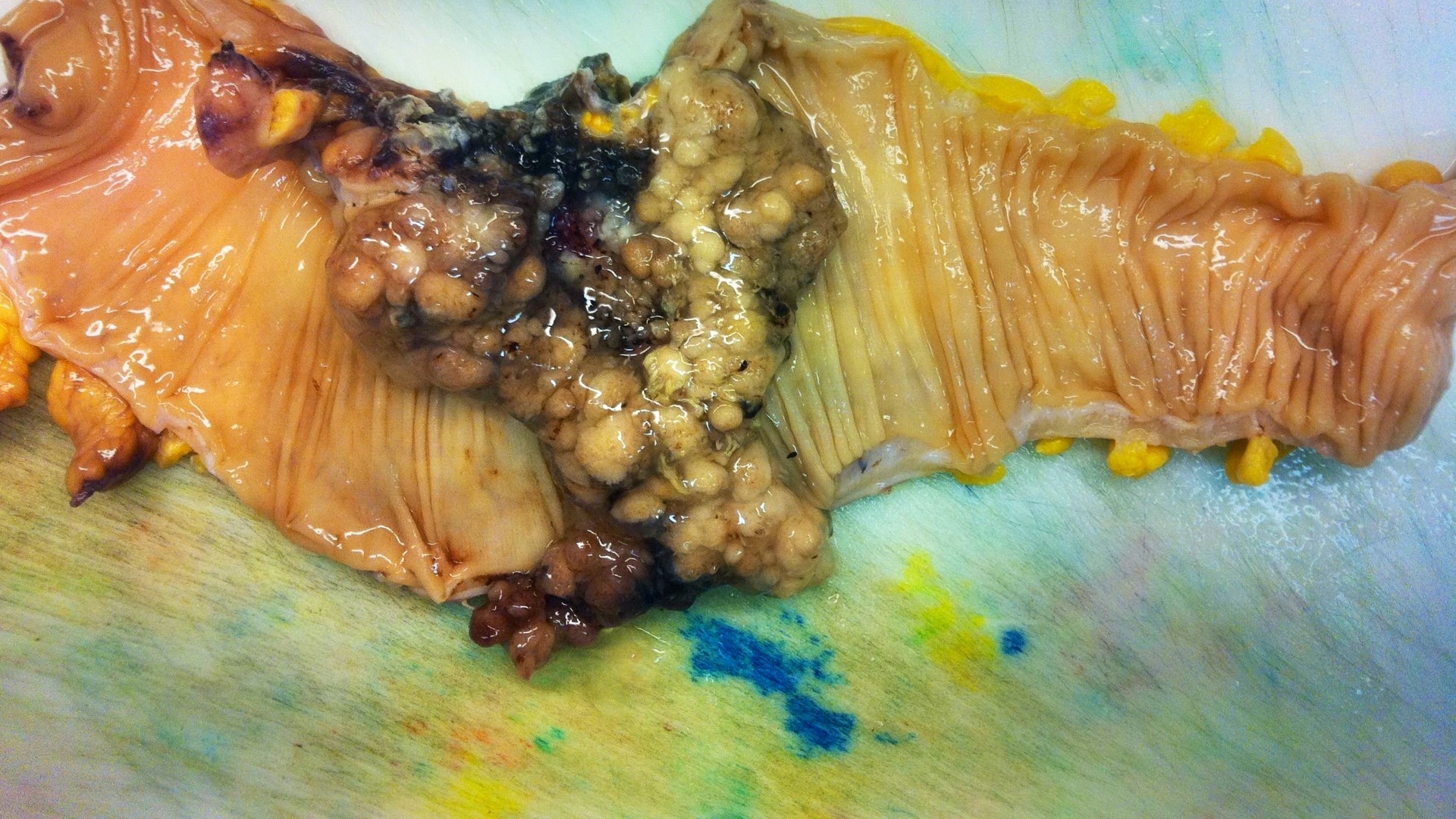
Resistant Starch and Colon Cancer
Fiber isn’t the only thing our good gut bacteria can eat. Starch can also act...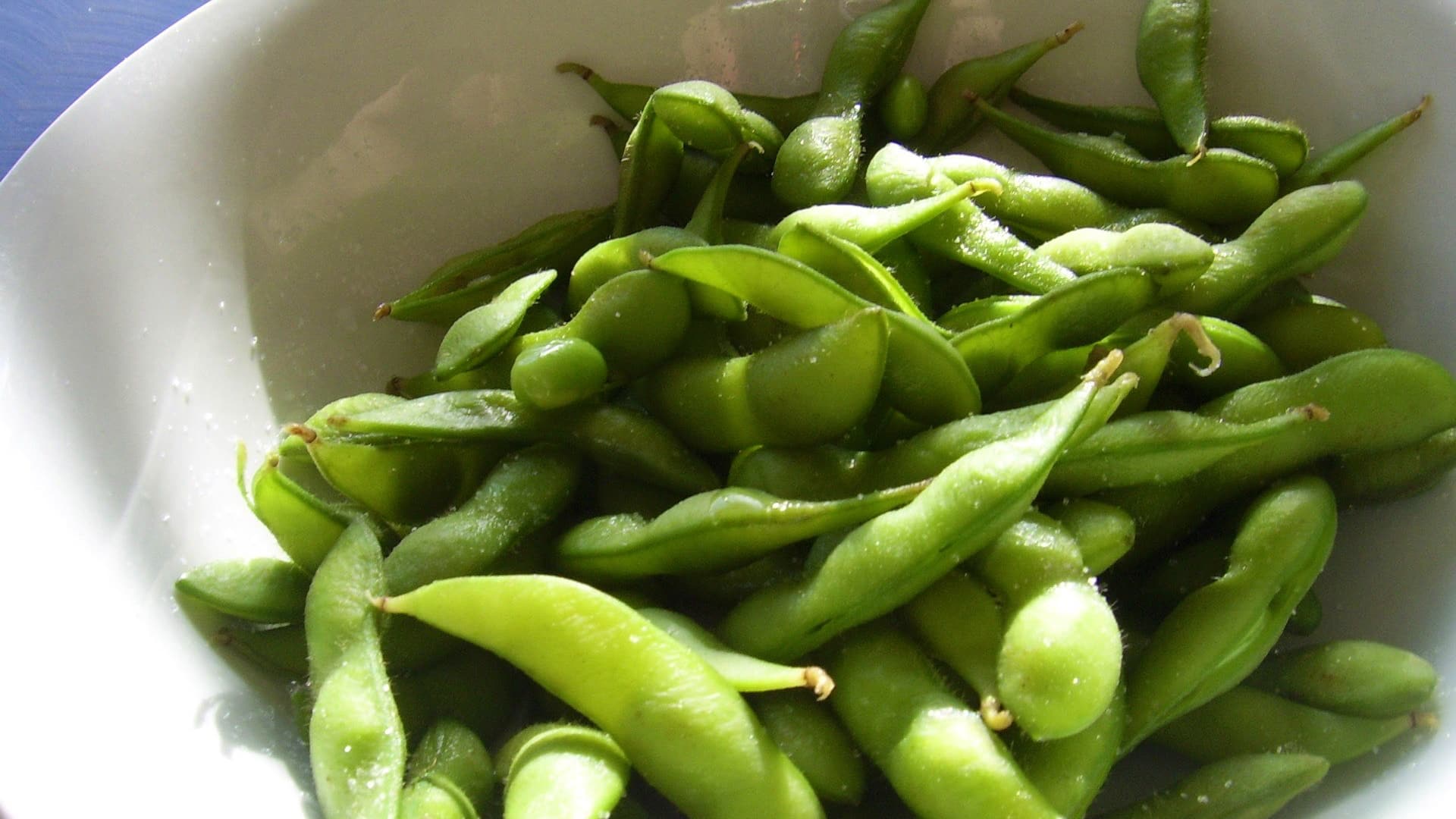
Who Shouldn’t Eat Soy?
How can soy foods have it both ways with pro-estrogenic effects in some organs that...
Animal Protein Compared to Cigarette Smoking
Only about 1 in 10,000 people live to be 100 years old. What’s their secret?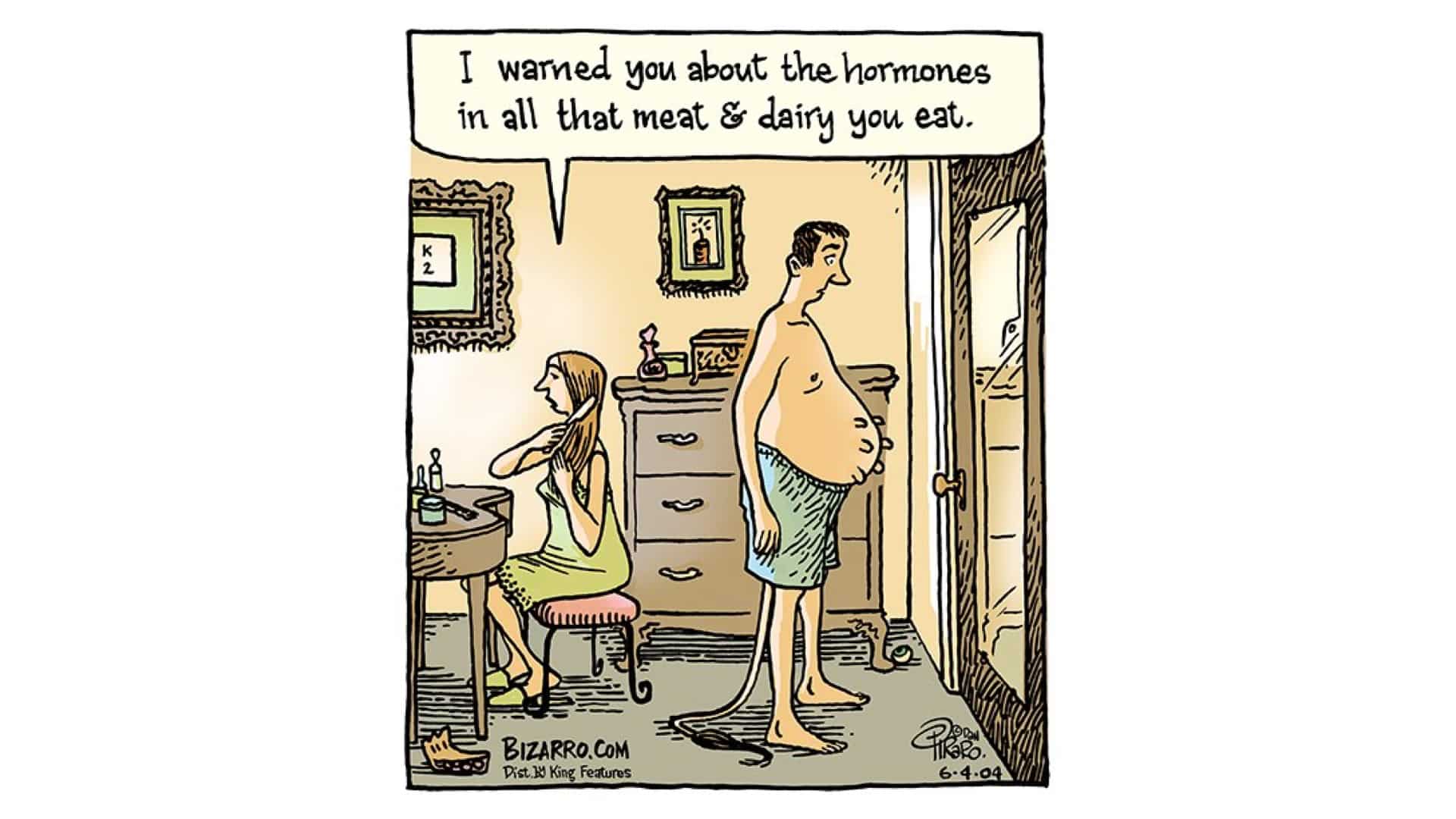
Zeranol Use in Meat and Breast Cancer
Anabolic growth-promoting drugs in meat production are by far the most potent hormones found in...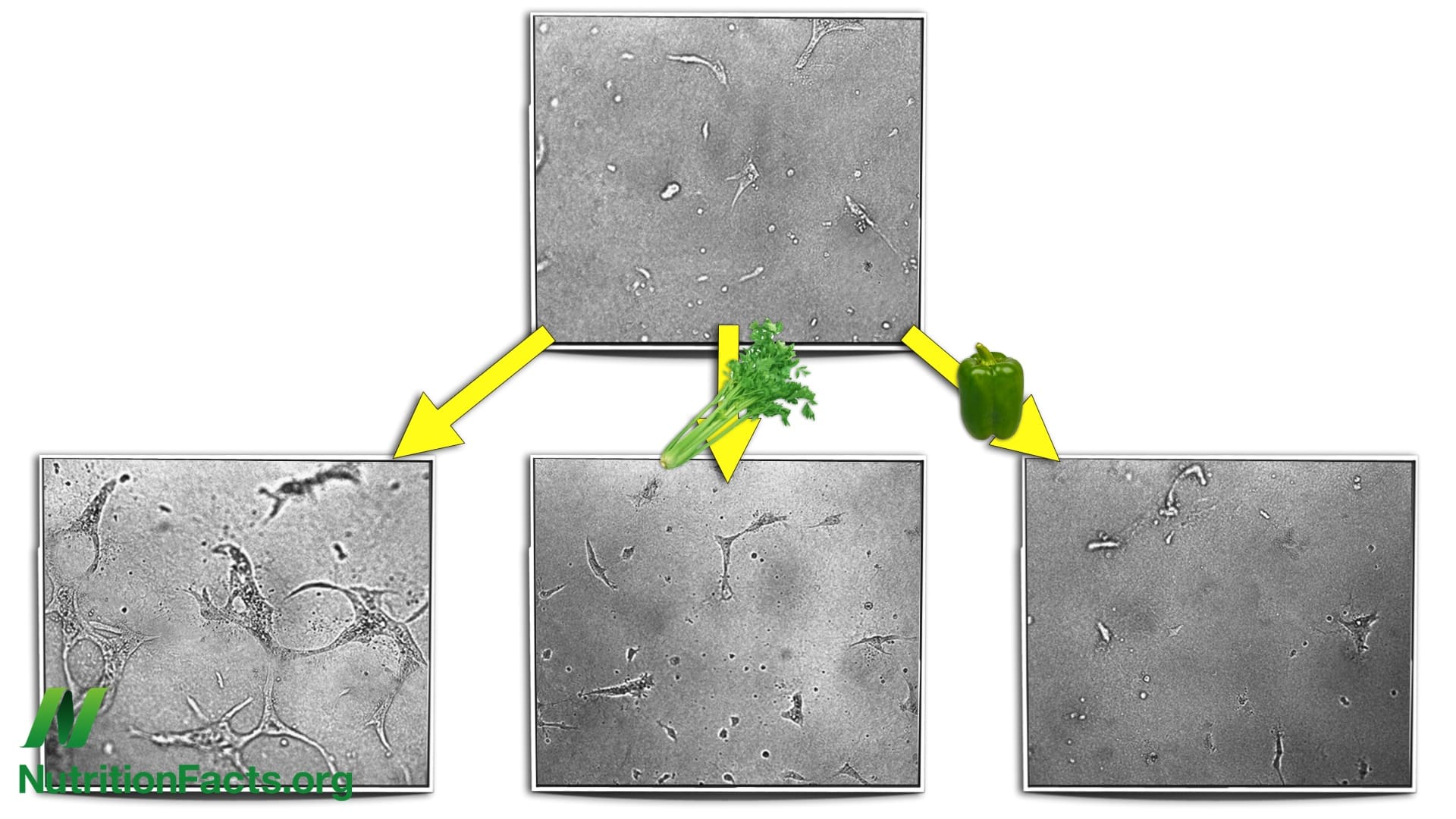
Anti-Angiogenesis: Cutting Off Tumor Supply Lines
Cancer cells are commonly present in the body, but cannot grow into tumors without hooking...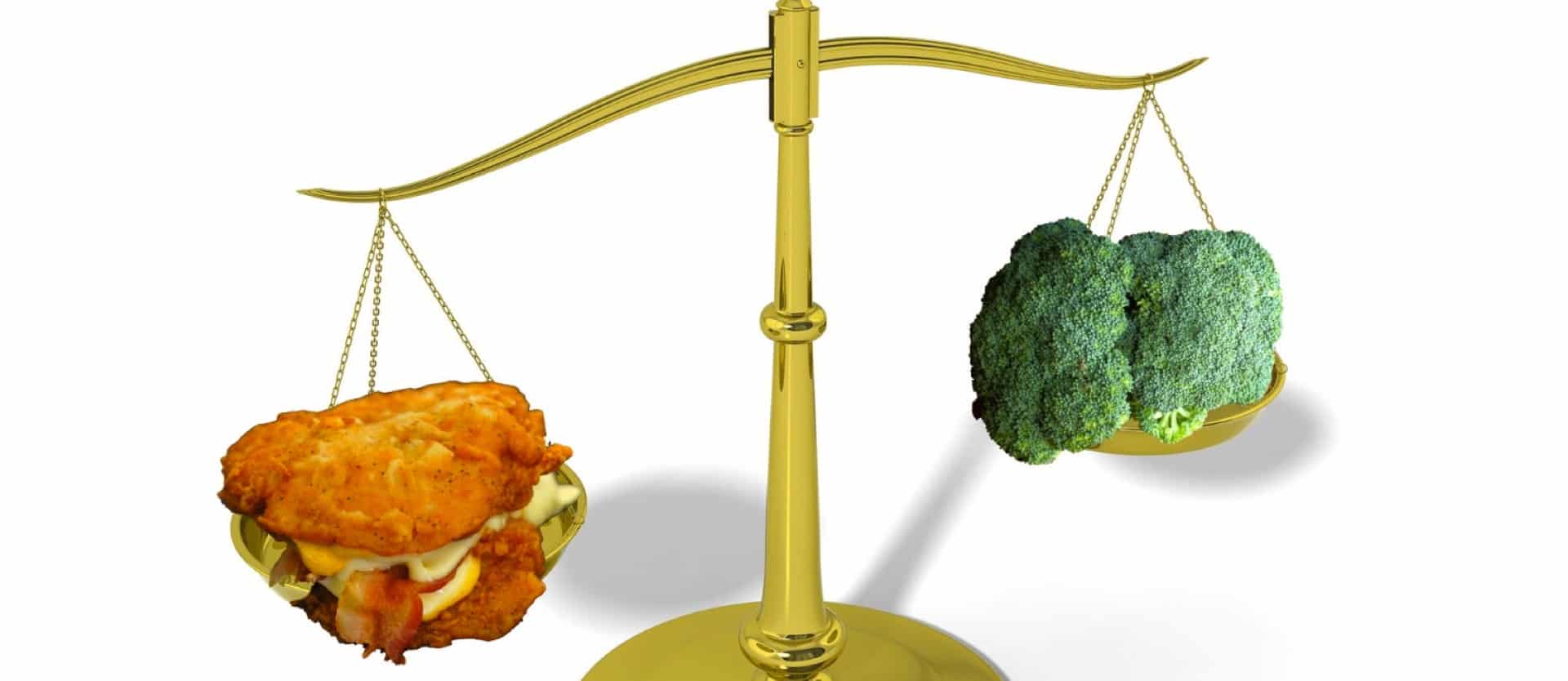
Prostate Cancer Survival: The A/V Ratio
Reducing the ratio of animal to plant protein in men’s diets may slow the progression...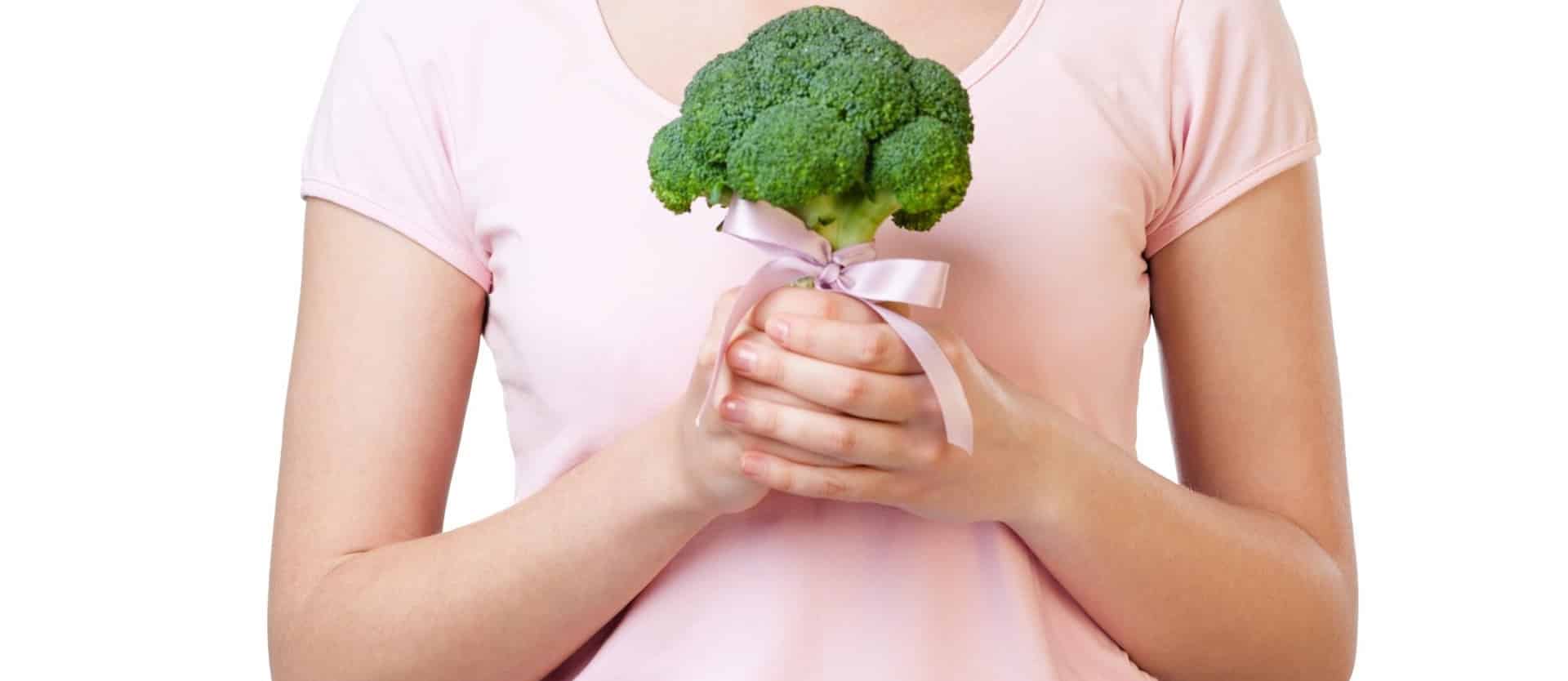
Breast Cancer Survival Vegetable
Simple changes in diet and lifestyle may quadruple a woman’s survival rate from breast cancer.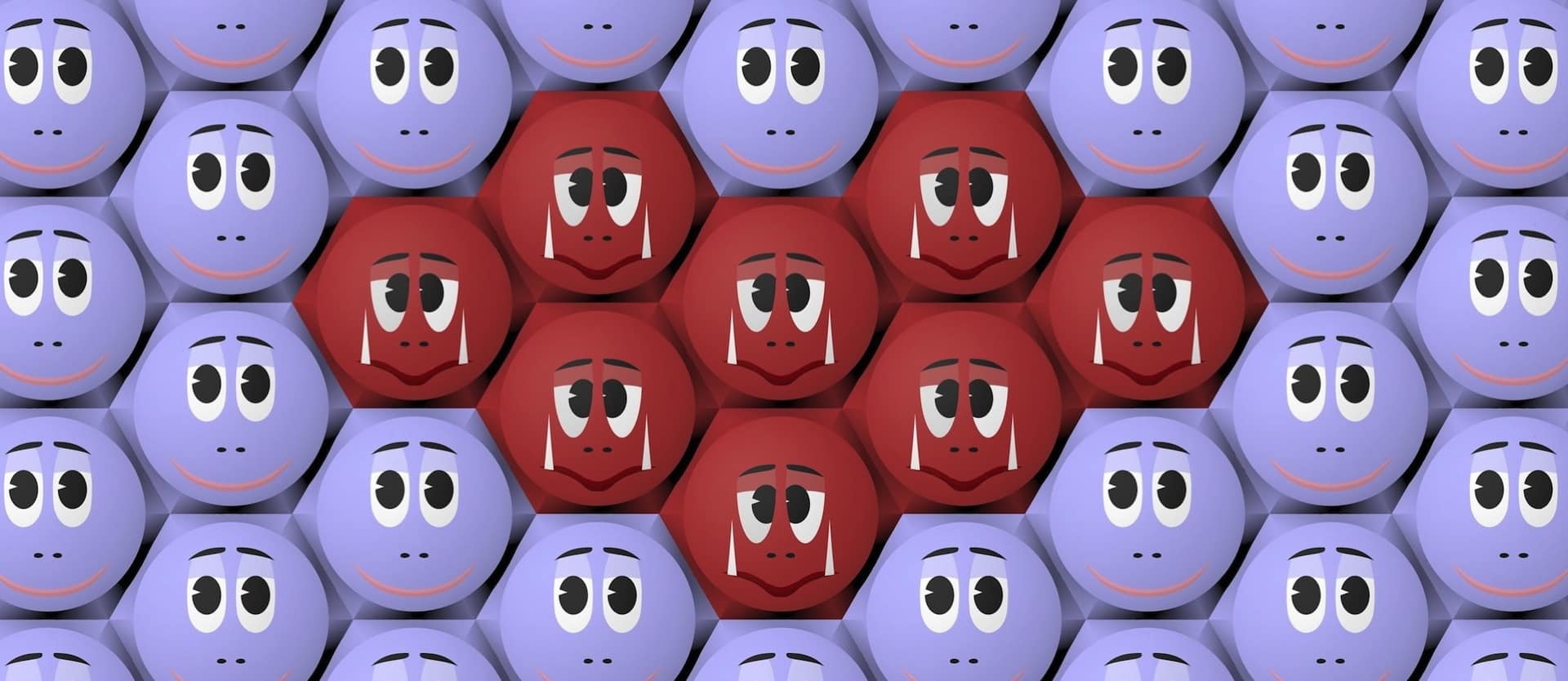
Eggs, Choline, and Cancer
Choline may be the reason egg consumption is associated with prostate cancer progression and death.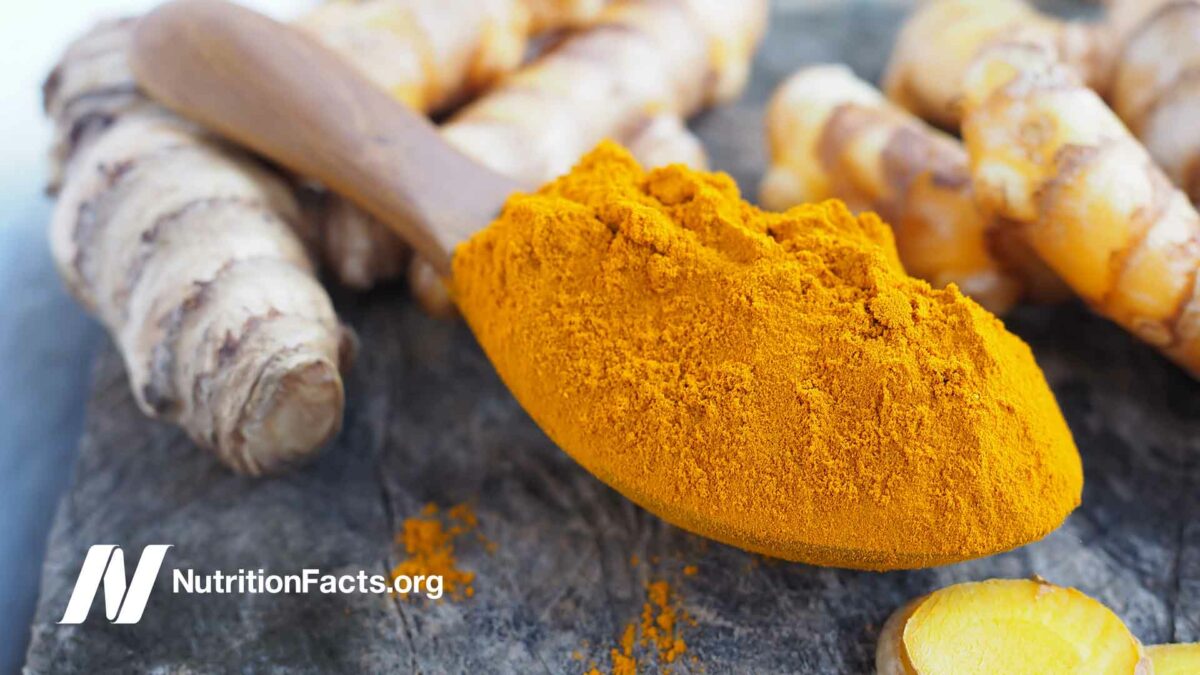
Back to Our Roots: Curry and Cancer
Dramatically lower cancer rates in India may in part be attributable to their more plant-based,...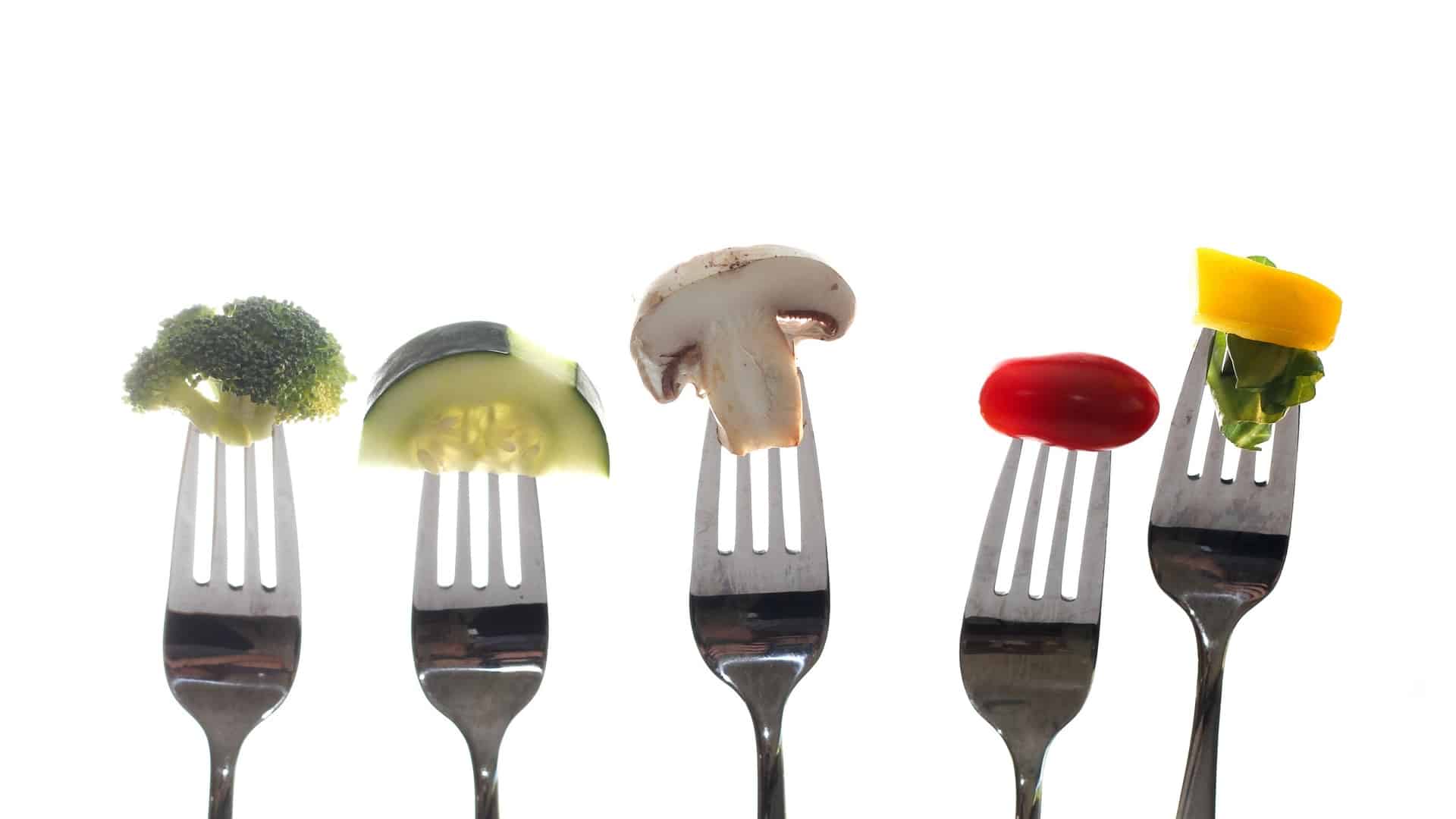
Which Dietary Factors Affect Breast Cancer Most?
American Institute for Cancer Research recommendation compliance associated not only with cancer prevention and survival...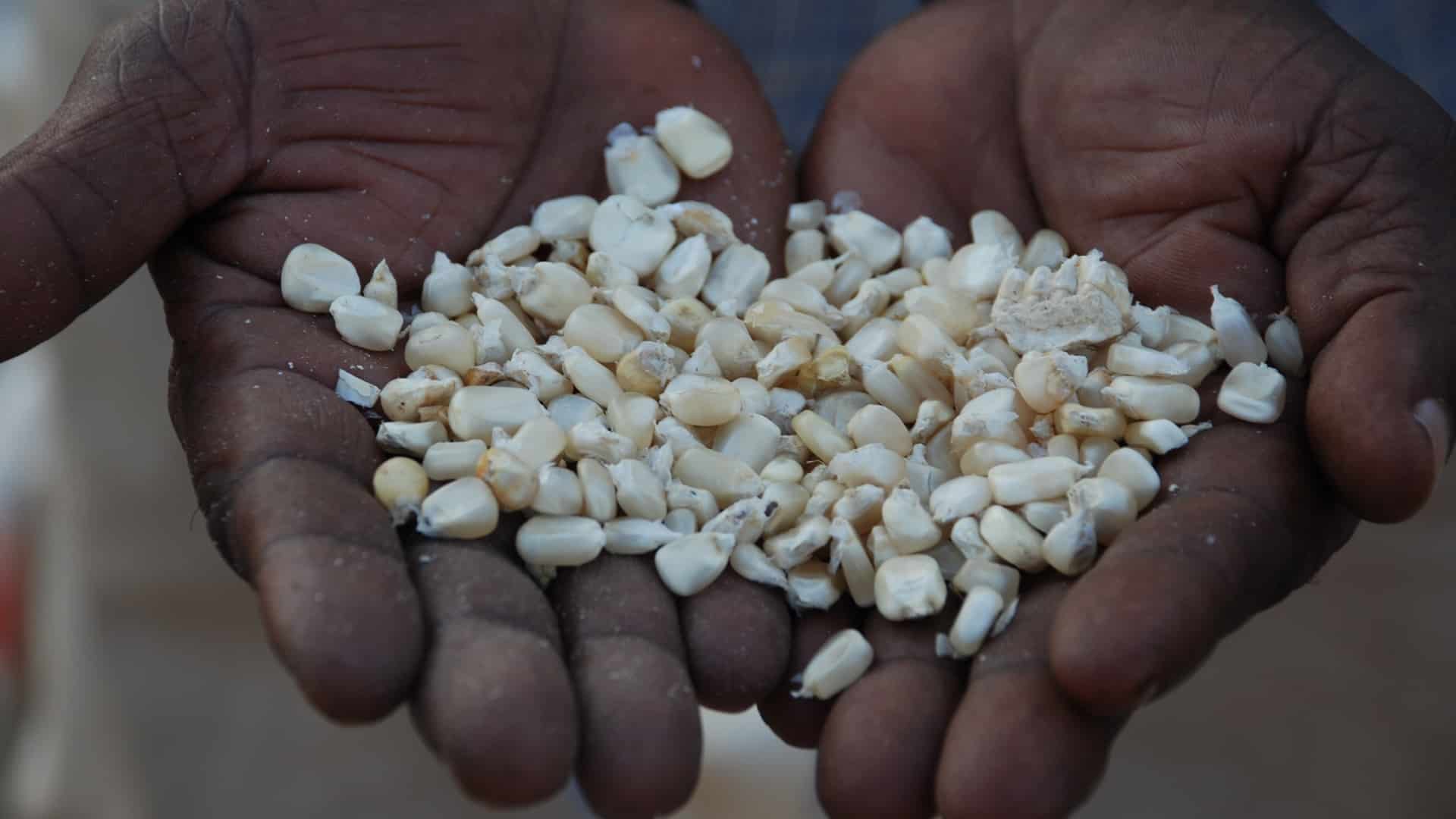
Solving a Colon Cancer Mystery
Even though modern African diets may now be as miserably low in fiber as American...
Should We All Get Colonoscopies Starting at Age 50?
Why do doctors in the United States continue to recommend colonoscopies when most other countries...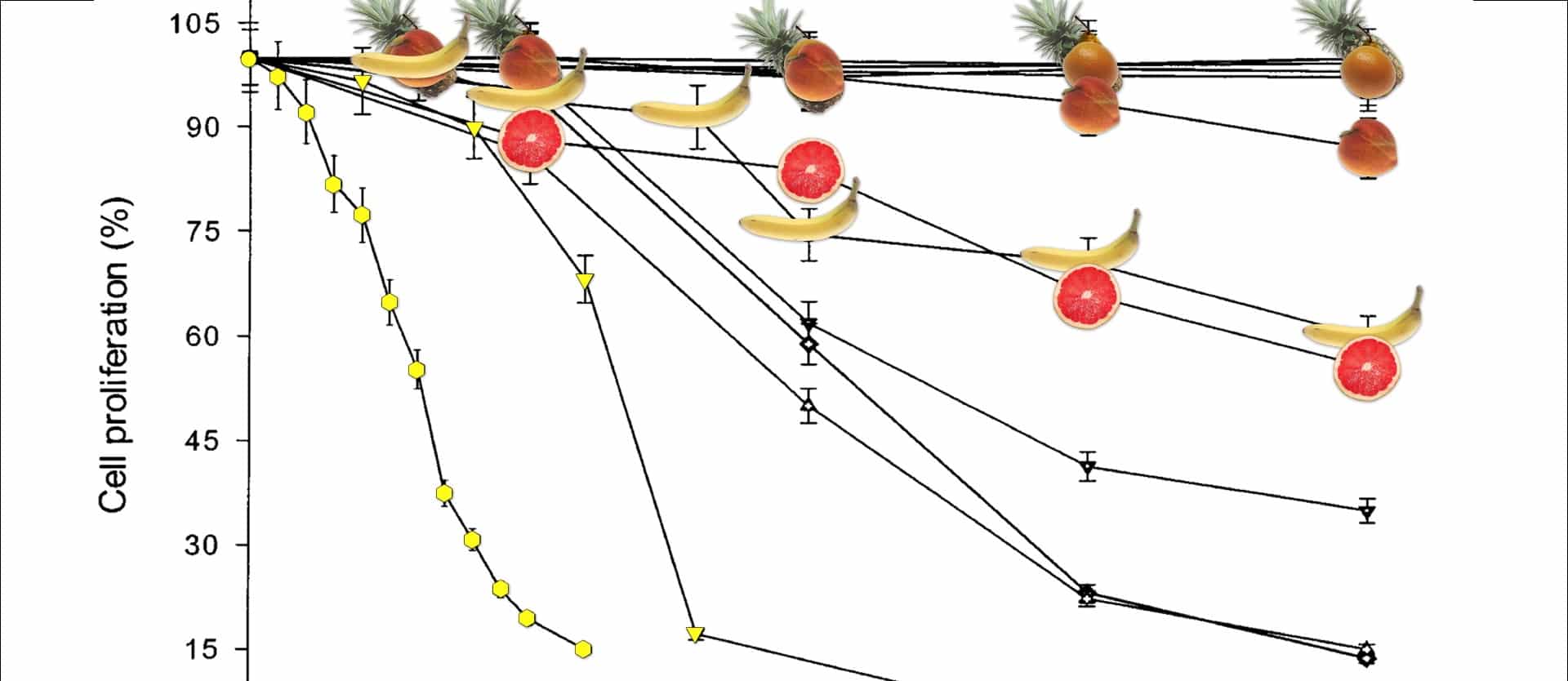
Which Fruit Fights Cancer Better?
The ability of eleven common fruits to suppress cancer cell growth in vitro was compared....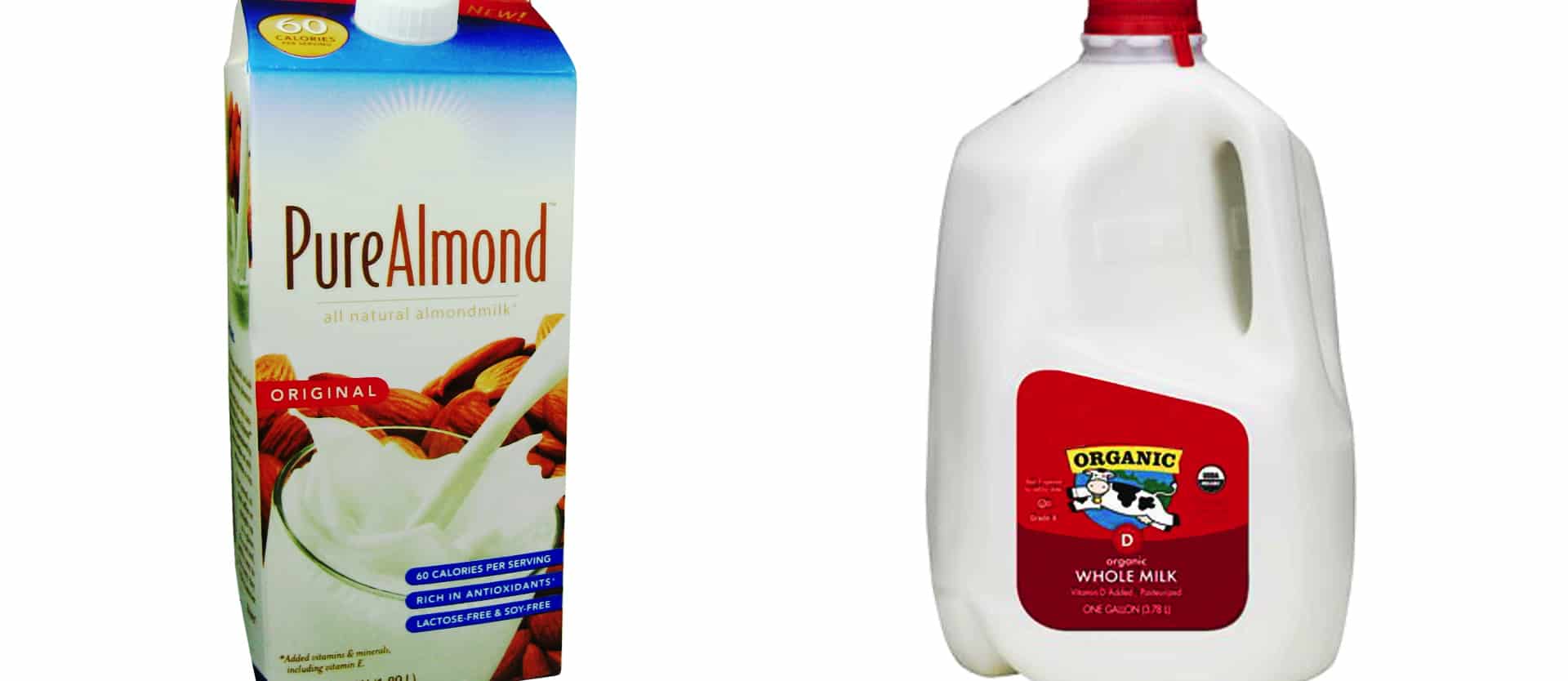
Prostate Cancer and Organic Milk vs. Almond Milk
Does the hormonal stimulation of human prostate cancer cells by cow milk in a petri...
Cholesterol Feeds Breast Cancer Cells
Cholesterol appears to stimulate the growth of human breast cancer cells—which may explain why phytosterol-rich...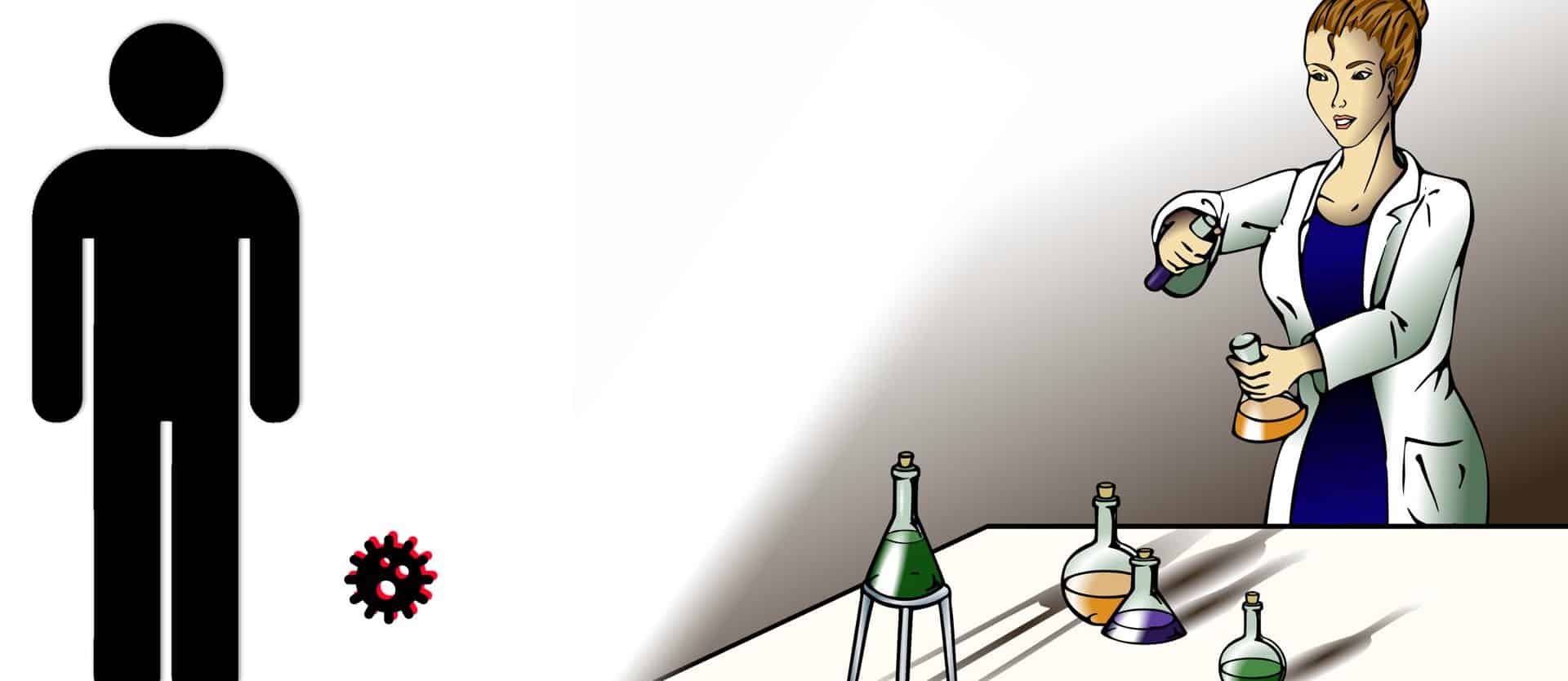
Starving Cancer with Methionine Restriction
Methionine restriction—best achieved through a plant-based diet—may prove to have a major impact on patients...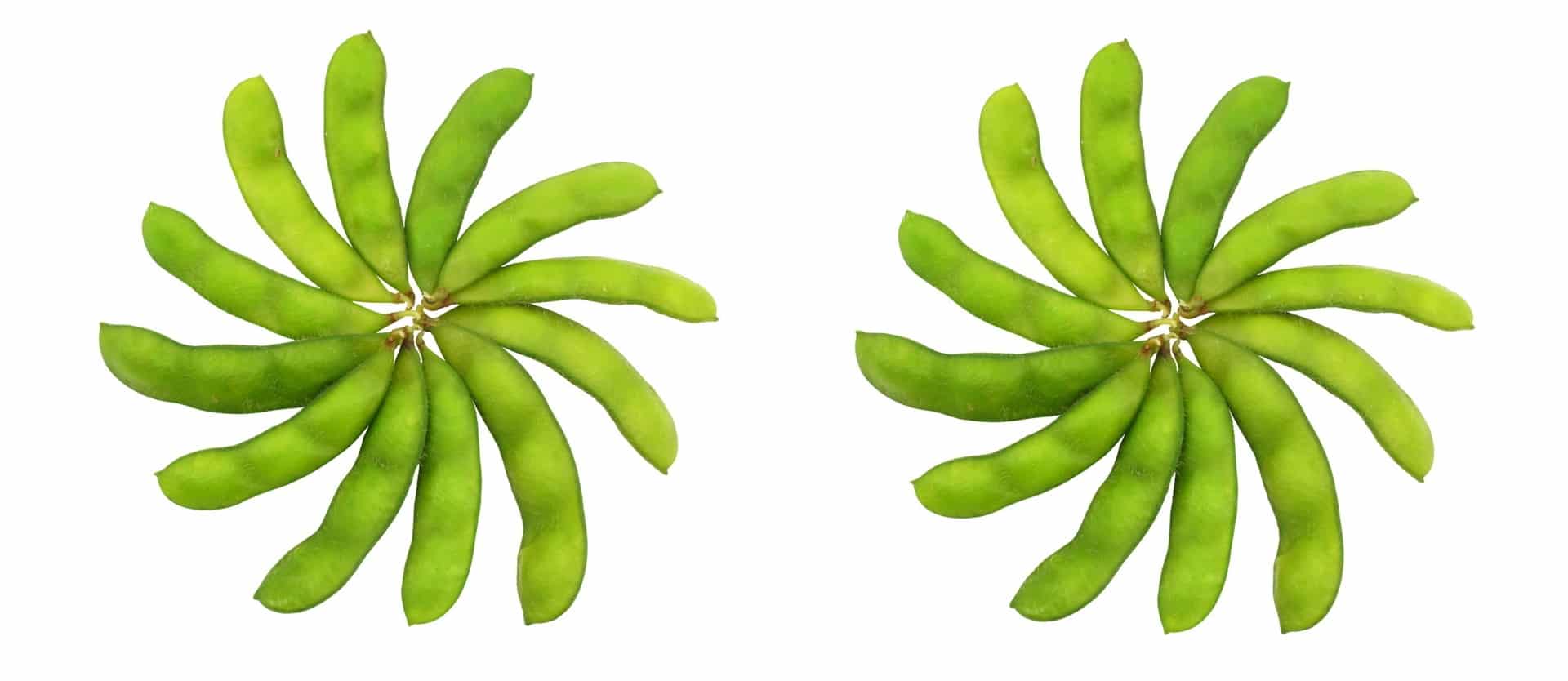
BRCA Breast Cancer Genes and Soy
One reason why soy consumption is associated with improved survival and lower recurrence rates in...All Videos for Cancer
-

Do the Health Impacts of Ultra-Processed Foods Apply to Plant-Based Meat Alternatives?
If the only ultra-processed food that appears to be killing people is meat, then plant-based meats may be the solution to the ultra-processed foods problem.
-

Which Ultra-Processed Foods Are the Worst in Driving the Association with Death and Disease?
Only two categories of ultra-processed foods have been associated with premature death.
-

How Bad Are Ultra-Processed Foods?
Are there aspects of ultra-processed foods beyond their nutrient profile that contribute to their deleterious effects?
-

Plant-Based Diets Could Save Millions of Lives and Trillions of Dollars a Year
How many lives would be saved if everyone ate vegetarian or vegan?
-

Are Large Weekly Doses of Vitamin B12 Safe?
Should we be concerned about getting too much B12?
-

The Best Way to Test for Vitamin B12 Deficiency
A diagnosis of B12 deficiency should not be dismissed based solely on a single measurement of B12 levels in the blood.
-

Like Beet Juice, Taurine Supplementation May Only Be Safe in the Context of a Plant-Based Diet
The adverse effects of taurine on our microbiome and hydrogen sulfide production may be ameliorated by diets high in fiber and low in saturated fats.
-

Caveats and Side Effects of Taurine Supplements
What are the downsides of taurine supplementation?
-

Taurine Supplementation Increases Lifespan and Healthspan in Animals
The level of taurine in our bodies declines with age, dropping by nearly 80 percent. Would consuming extra improve lifespan or healthspan?
-

Don’t Eat Raw Alfalfa Sprouts
Broccoli sprouts don’t have the food safety risks of alfalfa sprouts.
-

What Are Hot Dogs and Burgers Made Of?
How much of hot dogs and burgers is actual muscle meat?
-

Yerba Mate and Cancer: Do Its Benefits Outweigh Its Risks?
Carcinogens like benzopyrene in cigarette smoke, grilled chicken, and yerba mate tea may explain higher rates of certain cancers in consumers.
-

The Side Effects of the Hormones in Milk
Within an hour of drinking dairy milk, blood levels of the estrogen estrone in men go up and testosterone goes down.
-

Carbadox, the Carcinogenic Drug Fed to U.S. Pigs but Banned in Other Countries
Carbadox, with its 97.9 percent likelihood of causing cancer in humans, is still being fed to pigs bound for the supermarket in the United States.
-

Reversing Early-Stage Prostate Cancer Progression with a Plant-Based Diet and Lifestyle Program
A plant-based lifestyle is put to the test against early and late-stage cancer
-

Are Environmental Toxins Lower in Wild-Caught or Farmed Fish?
The adverse effects of industrial pollutants in seafood may counteract the benefits of nutrients in fish.
-

Cancer from Benzene from the Preservative Sodium Benzoate in Beverages?
Certain soft drinks and bottled (heated) carrot juice may contain carcinogenic levels above safety standards.
-

Do Not Eat Pawpaws
Pawpaw fruits, like soursop, guanabana, sweetsop, sugar apple, cherimoya, and custard apple, contain neurotoxins that may cause a neurodegenerative disease.
-

The Benefits of Purslane for Treating Oral Lichen Planus
The weed purslane appears to not only be the safest treatment available for the autoimmune disease lichen planus, but the most effective, too.
-

Drug Residues in Meat and Their Effect on Antibiotic Resistance
What percentage of meat samples test positive for drug residue violations?
-

Golden vs Brown Flaxseed: Which Has More Benefits?
Which kind of flaxseed has more cancer-fighting lignans?
-

The Highest Antioxidant: Apple, Bean, Berry, Lentil, or Nut?
The best apple, bean, berry, lentil, and nut are the ones you’ll eat the most of; but if you don’t have a strong preference, which has the highest antioxidant power?
-

Perceptions of Childhood Obesity and Diet Quality
One reason kids may not be eating more healthfully is that their parents vastly overestimate the quality of their child’s diet.
-

How to Slow Cancer Growth
At this very moment, many of us have tumors growing inside our bodies, so we cannot wait to start eating and living more healthfully.
-

The Effects of Hormesis from Low-Dose Radiation on Life Extension
Our bodies are exposed to about 20,000 hits of radiation from cosmic rays every second. Is that good or bad?
-

Choosing the Safest and Most Effective Sunscreen (webinar recording)
Has sunscreen been proven to prevent skin aging and cancer?
-

The Side Effects of Artificial Food Coloring and Dyes: Cancer and ADHD
Excluding artificial food colors from children’s diets can improve ADHD symptoms.
-

Risks of NAD+ Boosting Supplements
Particular caution should be used for NAD+-boosting supplements by those with cancer, a personal or strong family history of cancer and perhaps also by those with inflammatory disorders and certain active infections.
-

What Is Essential Hand Tremor and How to Prevent and Treat It
What is the role of dietary beta-carboline alkaloids in the development of the most common movement disorder?
-

Microbiome Manipulation with Oligomannate for Treating Dementia
A prebiotic derived from a type of brown seaweed is used for mild to moderate Alzheimer’s dementia in China. Does it work?
-

Natural Ozempic Alternatives: Boosting GLP-1 with Diet and Lifestyle
Certain spices and the quinine in tonic water can boost GLP-1, but at what cost?
-

Is Ozempic (Semaglutide) Safe? Does It Increase Cancer Risk?
How common are serious potential side effects of GLP-1 weight-loss drugs, such as suicide, pancreatitis, bowel obstruction, thyroid cancer, and pancreatic cancer?
-

How to Control the Side Effects (Including “Ozempic Face”) of GLP-1 Drugs
How might we mitigate the gastrointestinal and muscle loss side effects of GLP-1 weight-loss drugs?
-

GLP-1 Weight-Loss Drugs Like Ozempic (Semaglutide): How Do They Work? Are They Effective?
What is the hormone GLP-1, what separates GLP-1 mimics from previous weight-loss drugs, and how much weight may be lost before weight loss plateaus?
-

The Best Way to Boost NAD+: Supplements vs. Diet (webinar recording)
The pros and cons of all the NAD+ supplements and what are the ways to boost NAD+ naturally with diet and lifestyle?
-

Do Vitamin E Supplements Have Benefits for Cancer, Immunity, and Longevity?
Those who buy vitamin E supplements may in effect be paying to live a shorter life.
-

Regulators Put the Squeeze on Juice Plus+
The Better Business Bureau and Federal Trade Commission explore the claims of Juice Plus+, a multi-level marketing company.
-

Is Rapamycin a Universal Anti-Aging Drug?
Self-experimentation with the anti-aging drug rapamycin continues to be strongly discouraged.
-

Inhibiting mTOR with Rapamycin for Extending Lifespan and Healthspan
Rapamycin appears to be a universal anti-aging drug, extending the lifespan of all animals tested to date; it’s the only known drug to do so.
-

The Benefits and Side Effects of Probiotic Supplements
Probiotics can actually interfere with microbiome recovery after antibiotics, rather than facilitate it.
